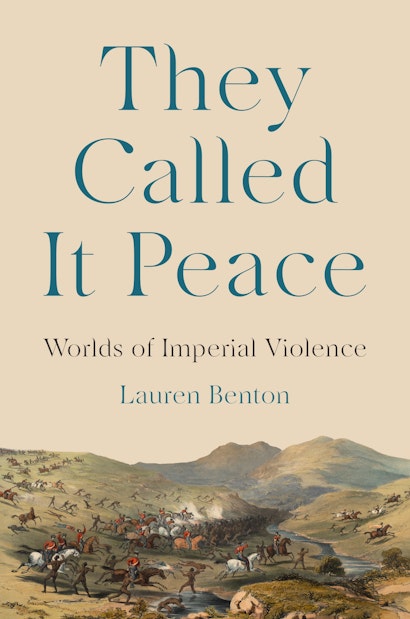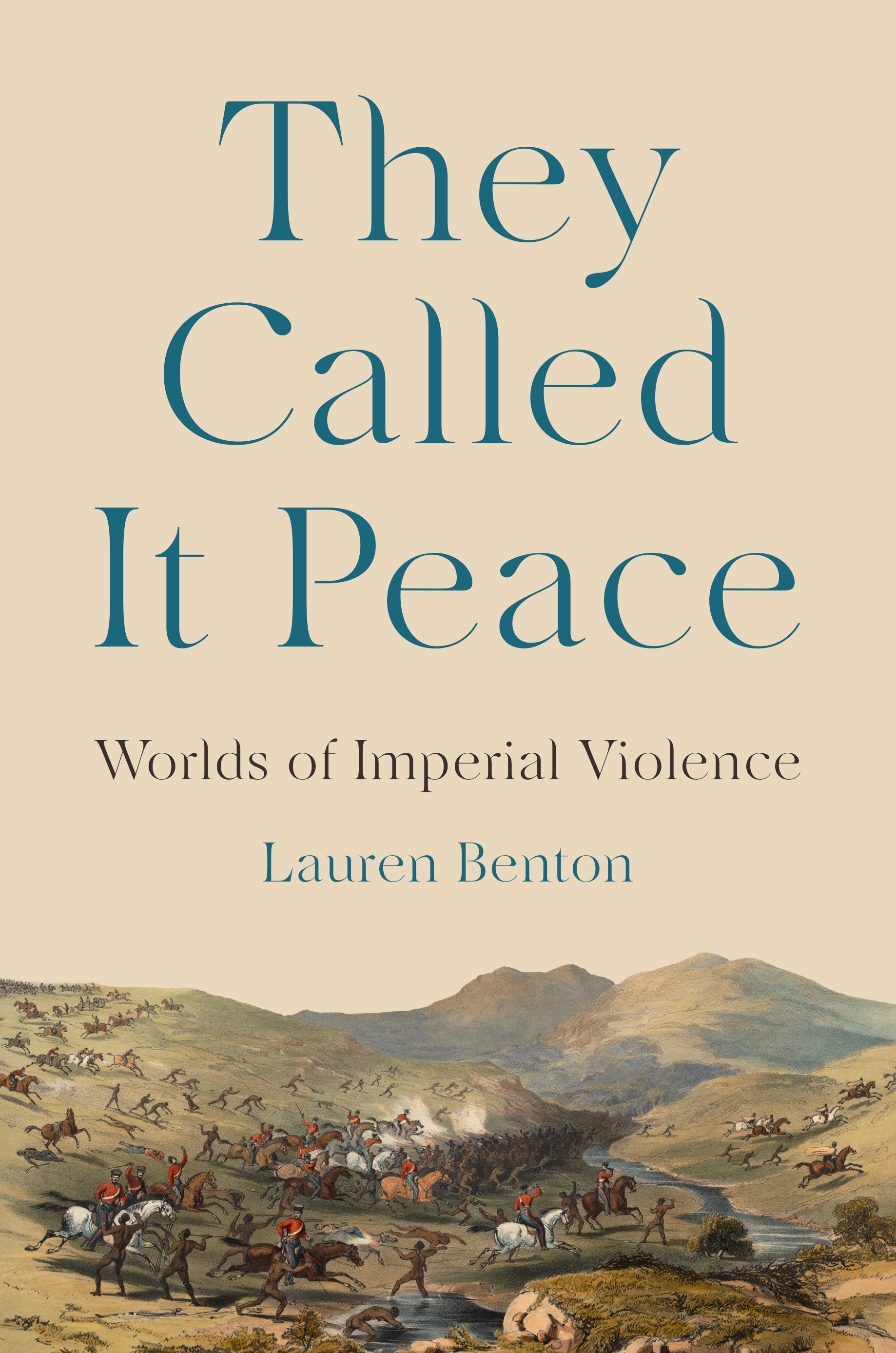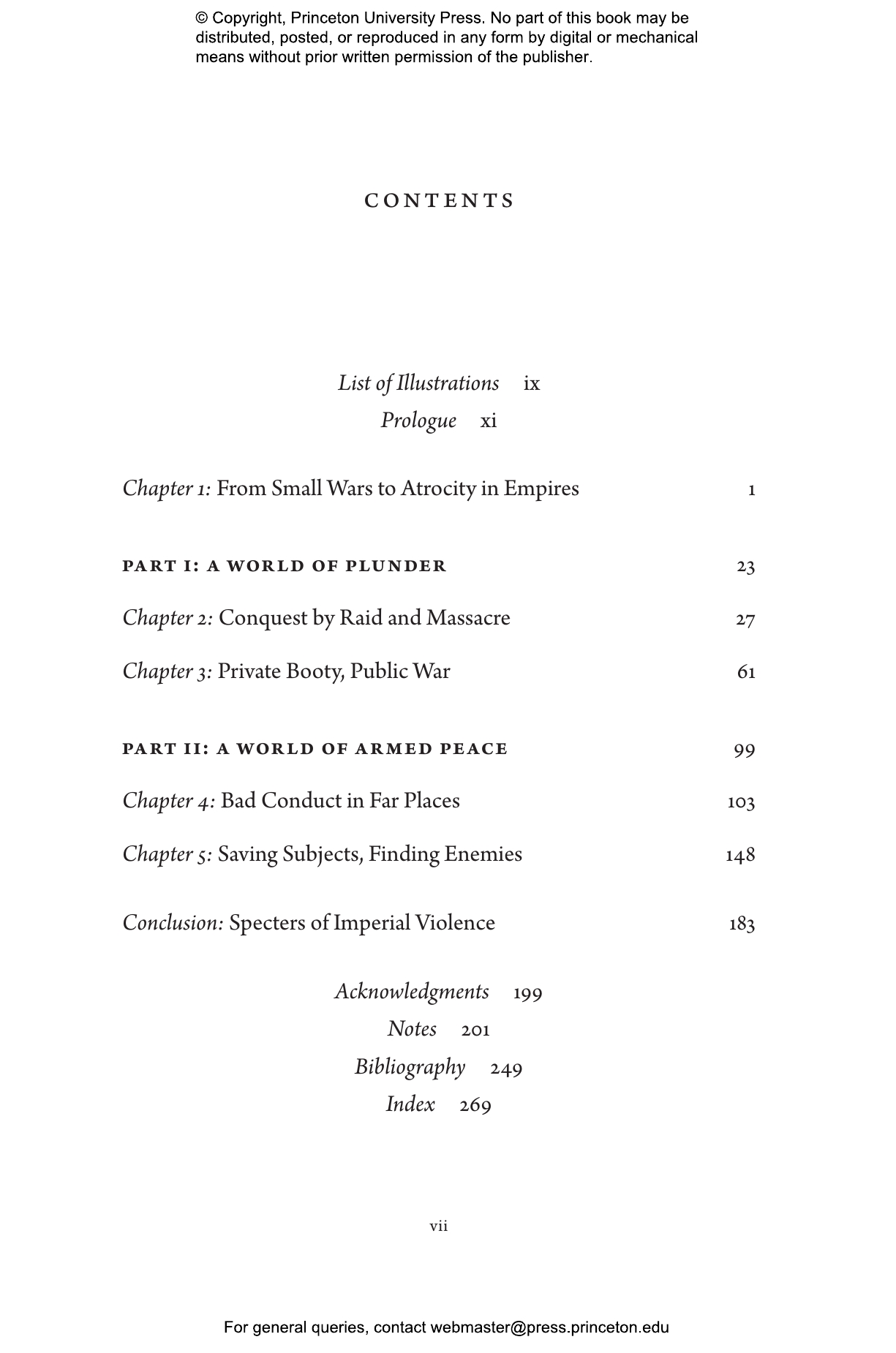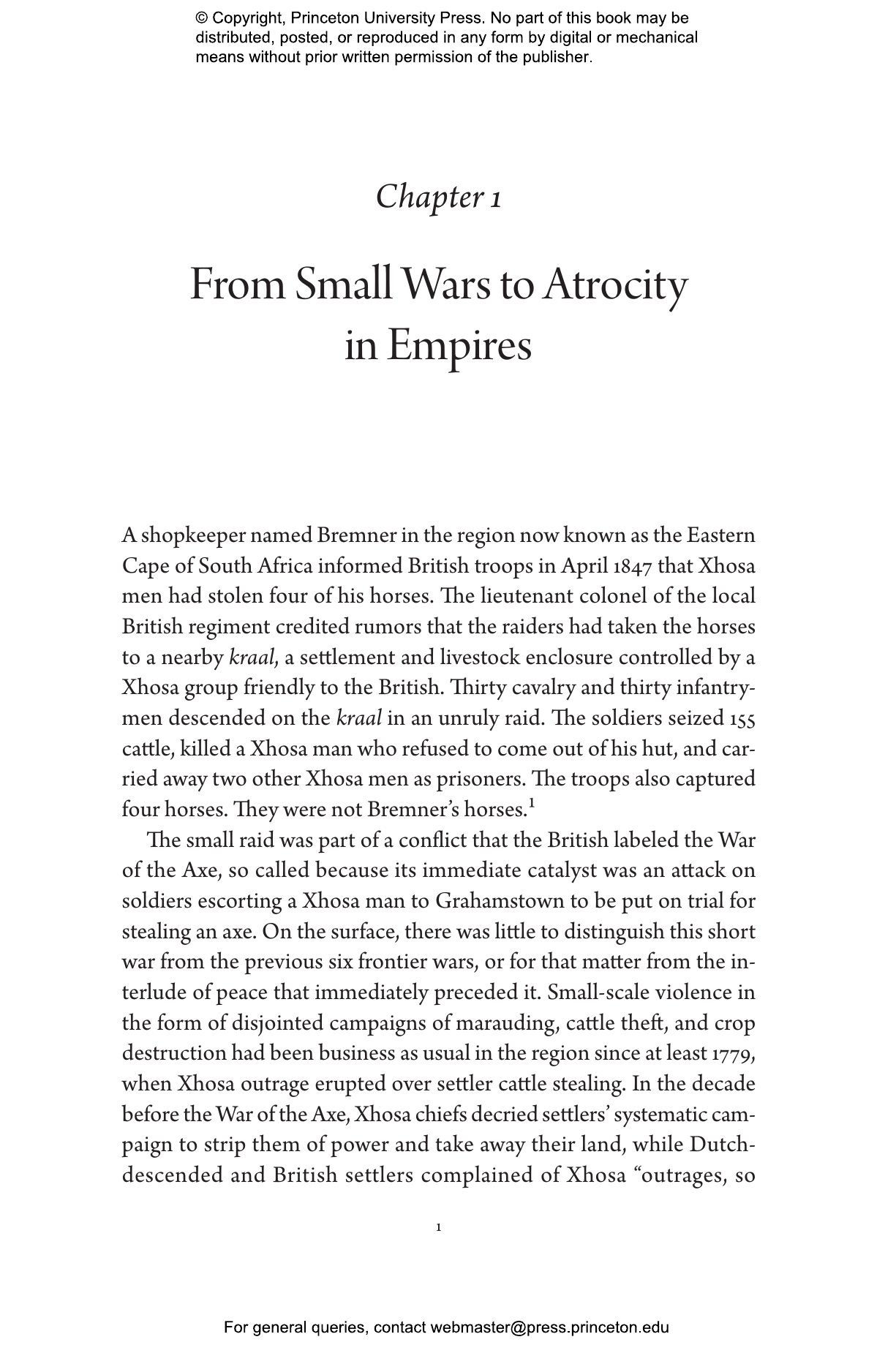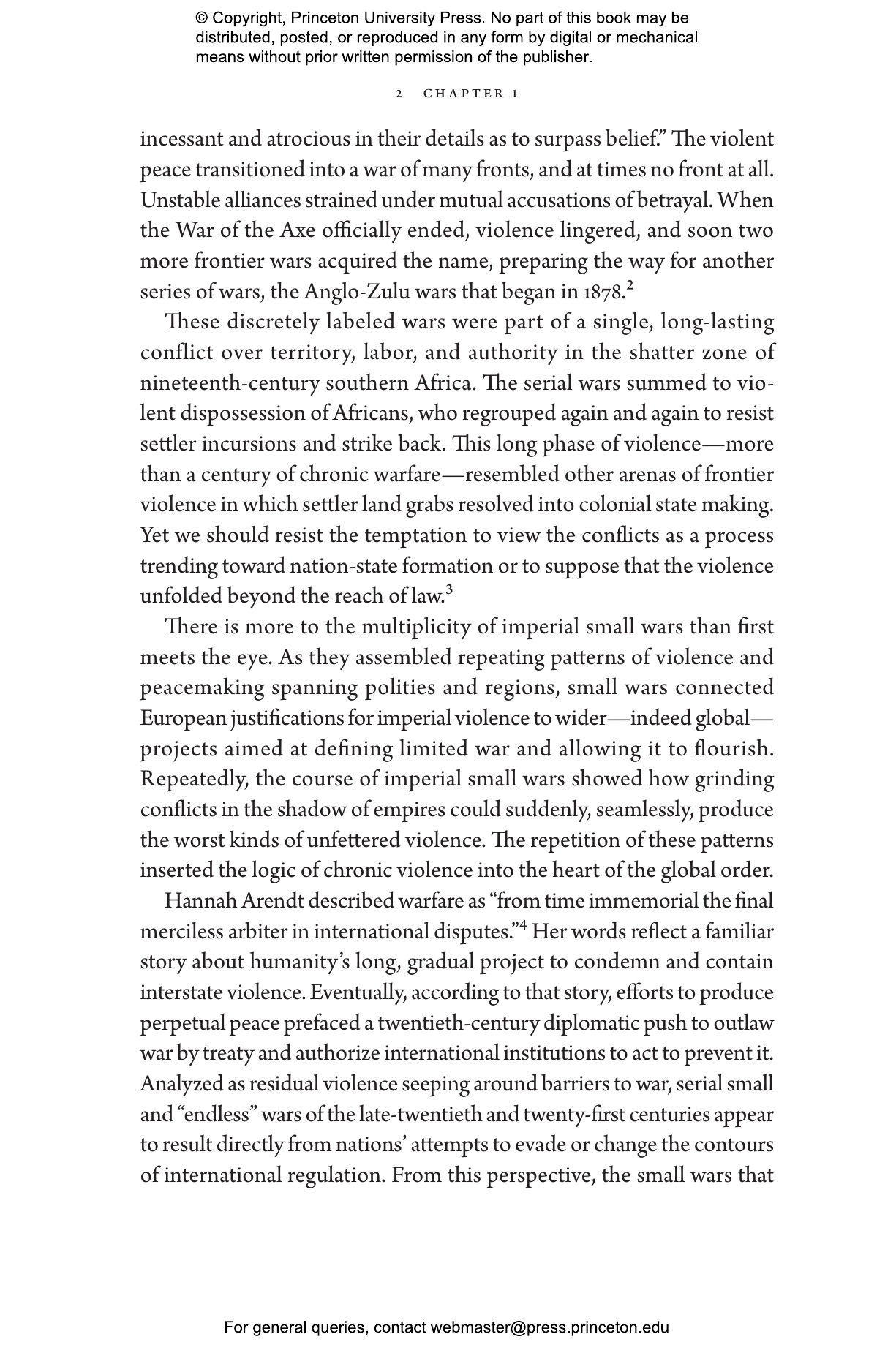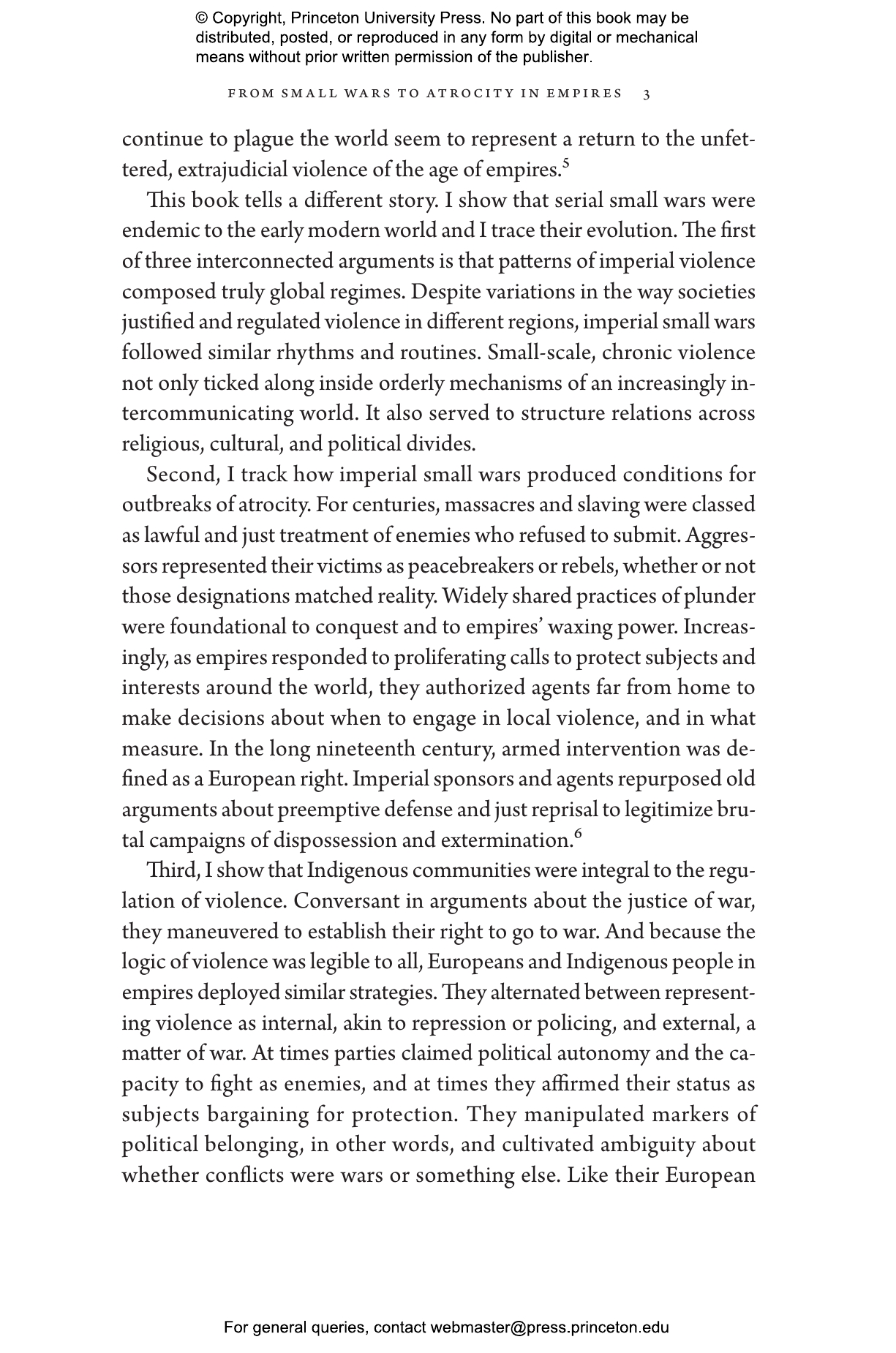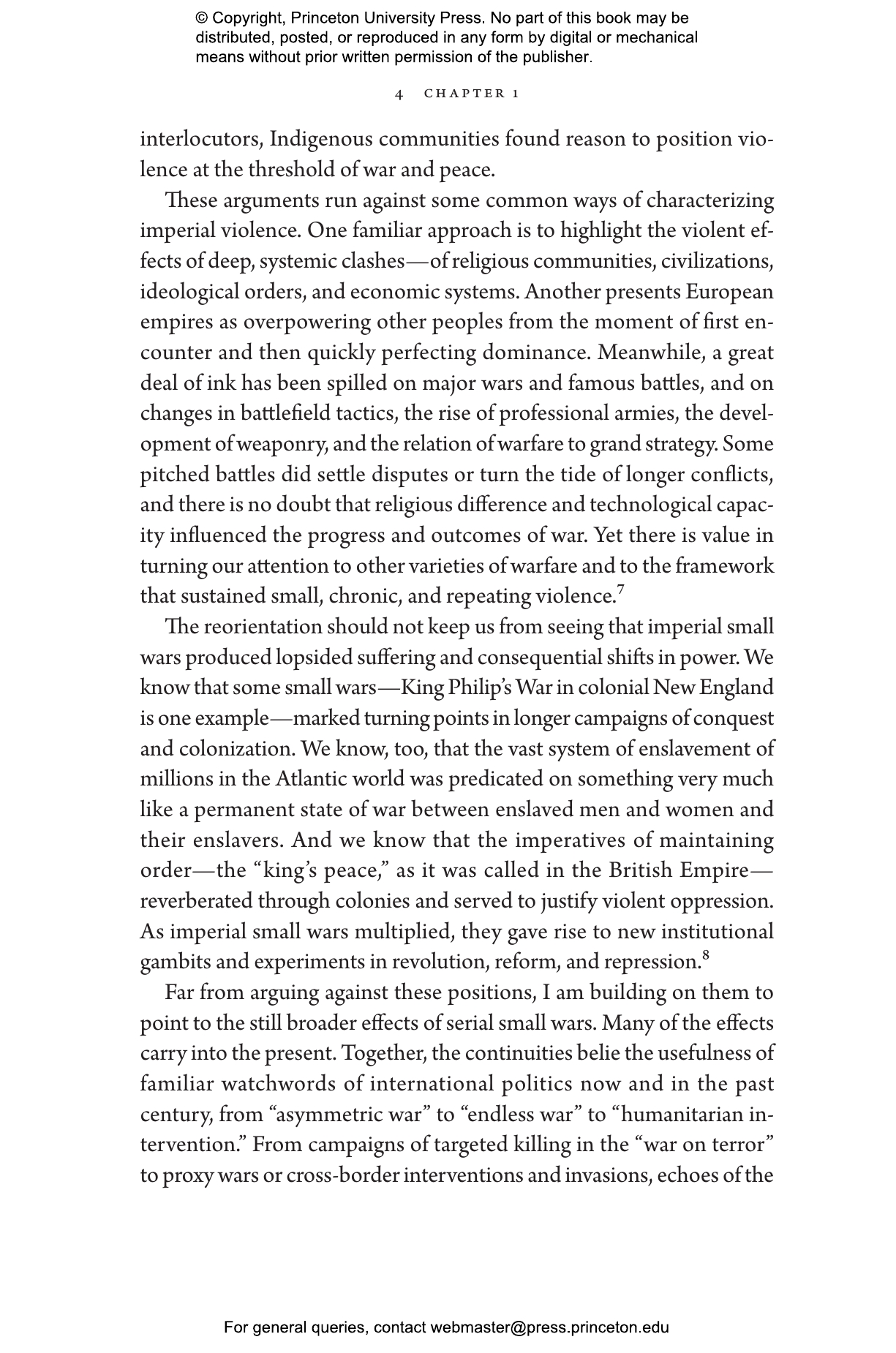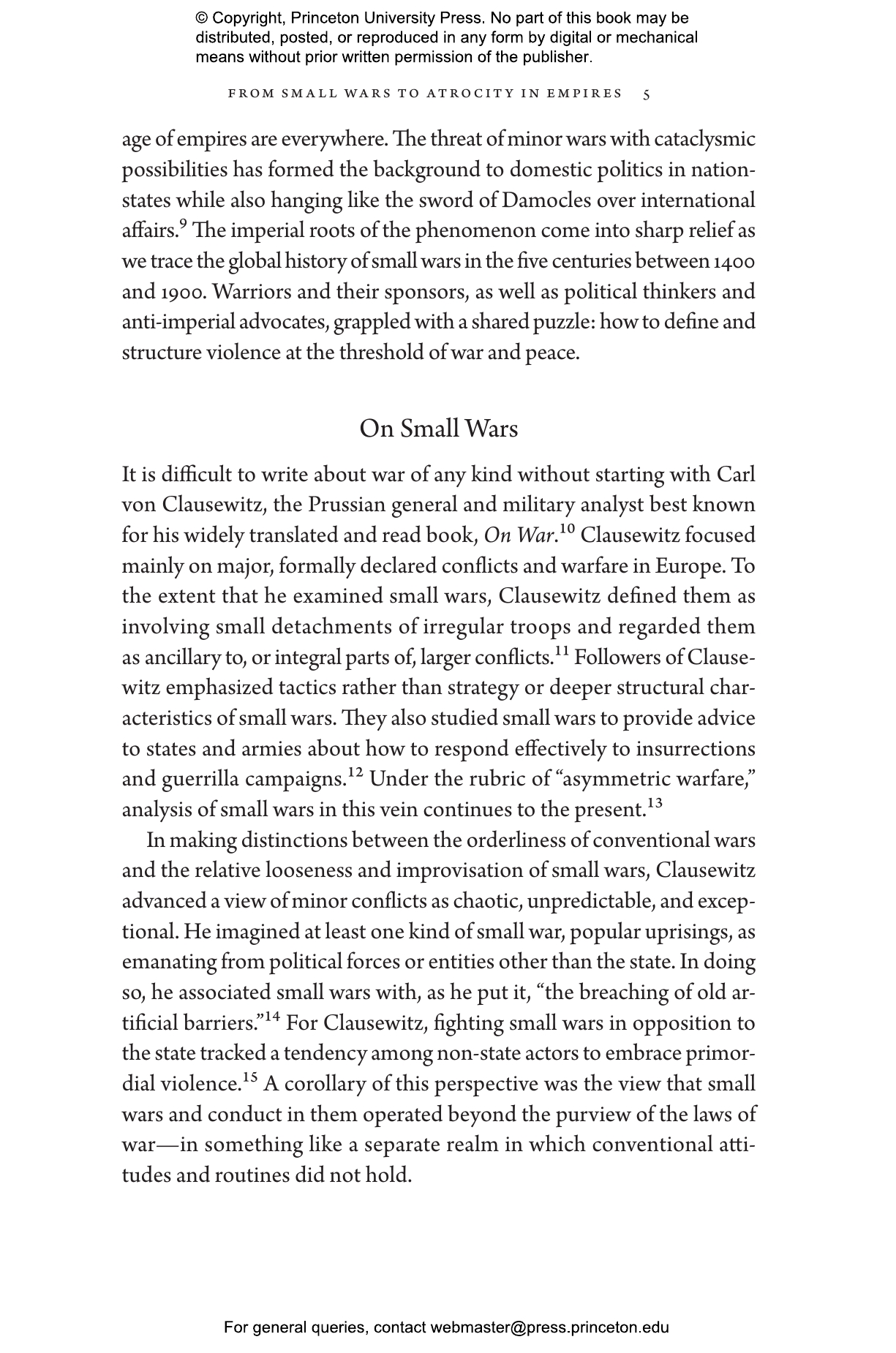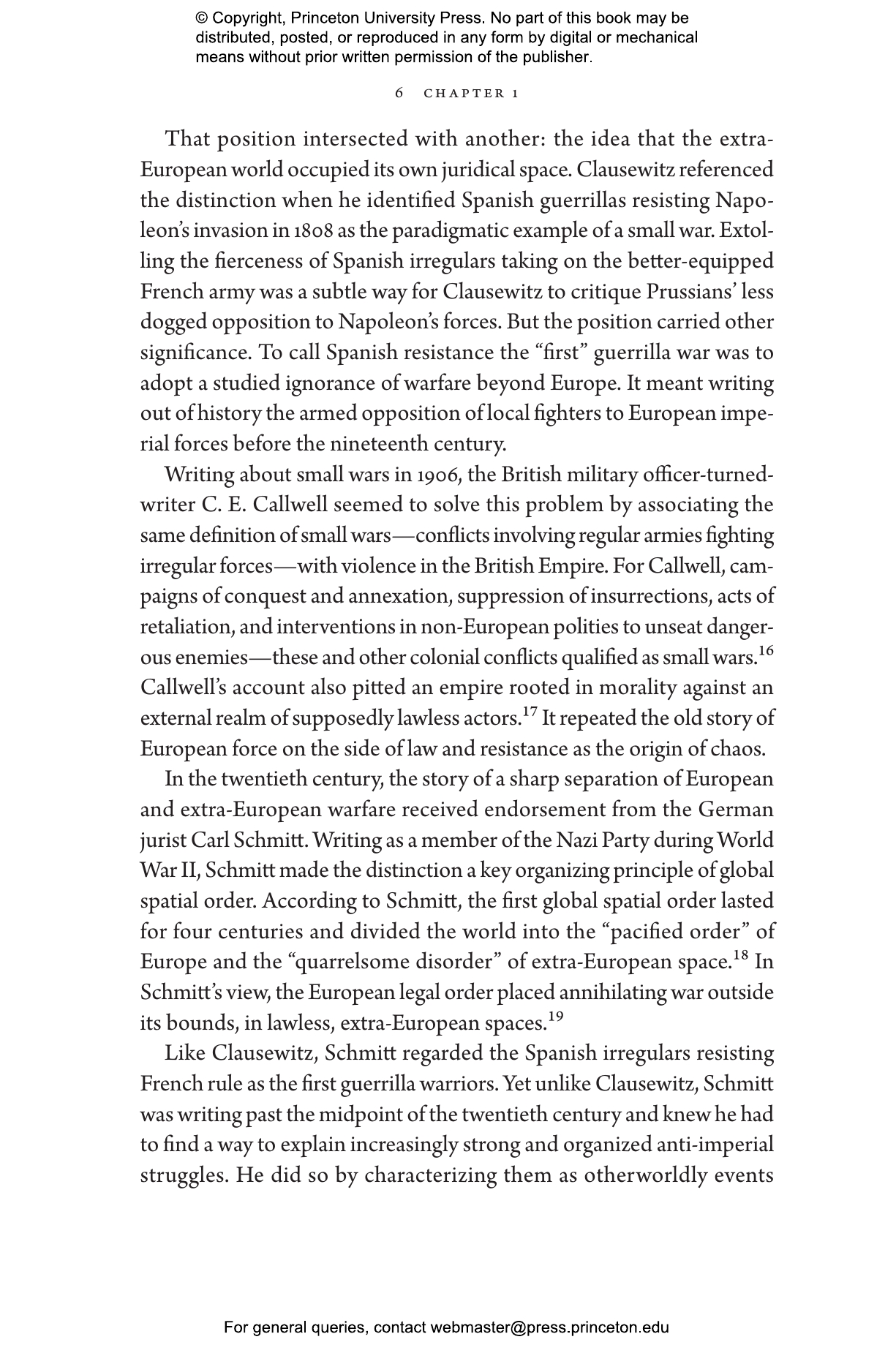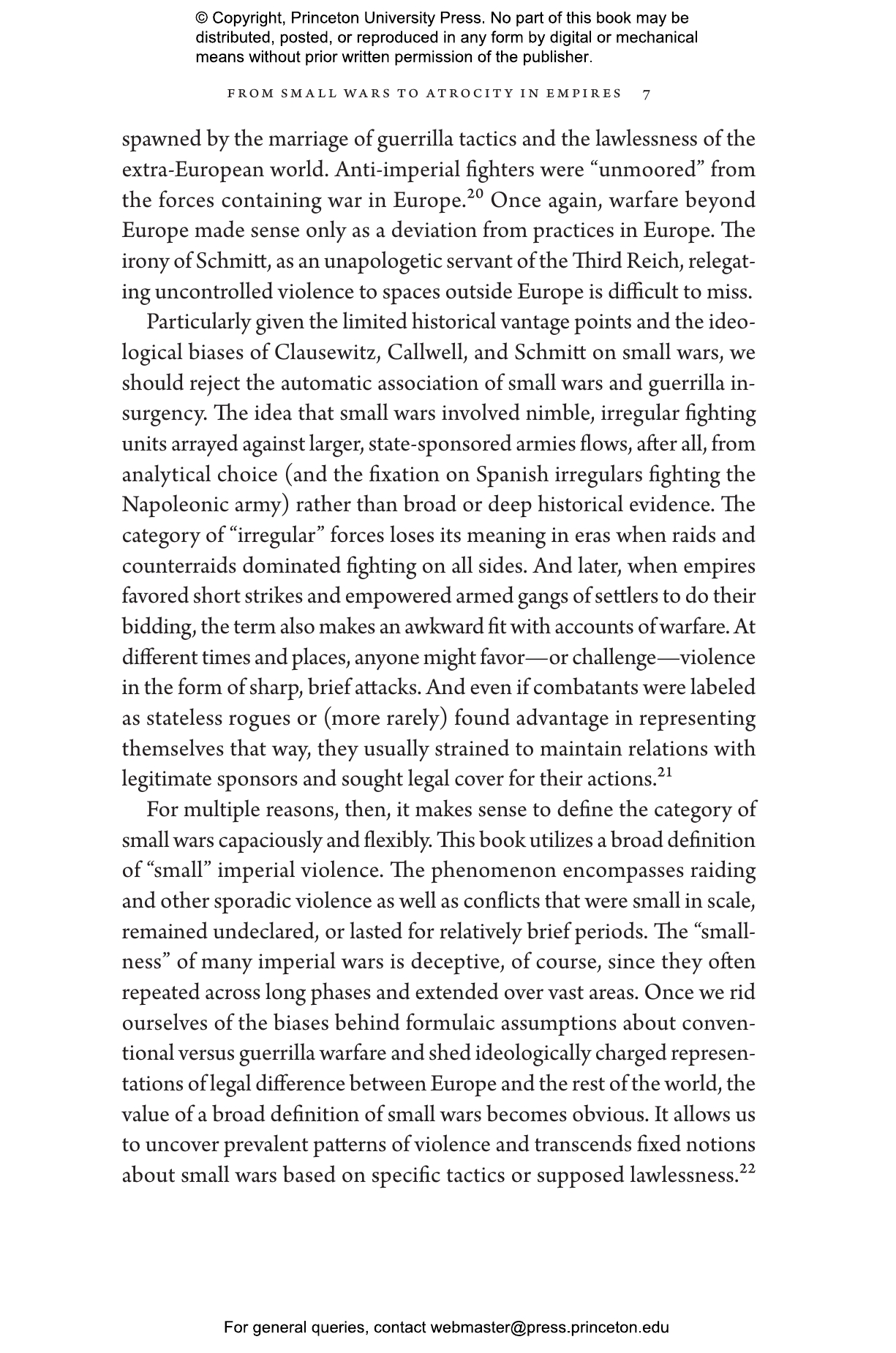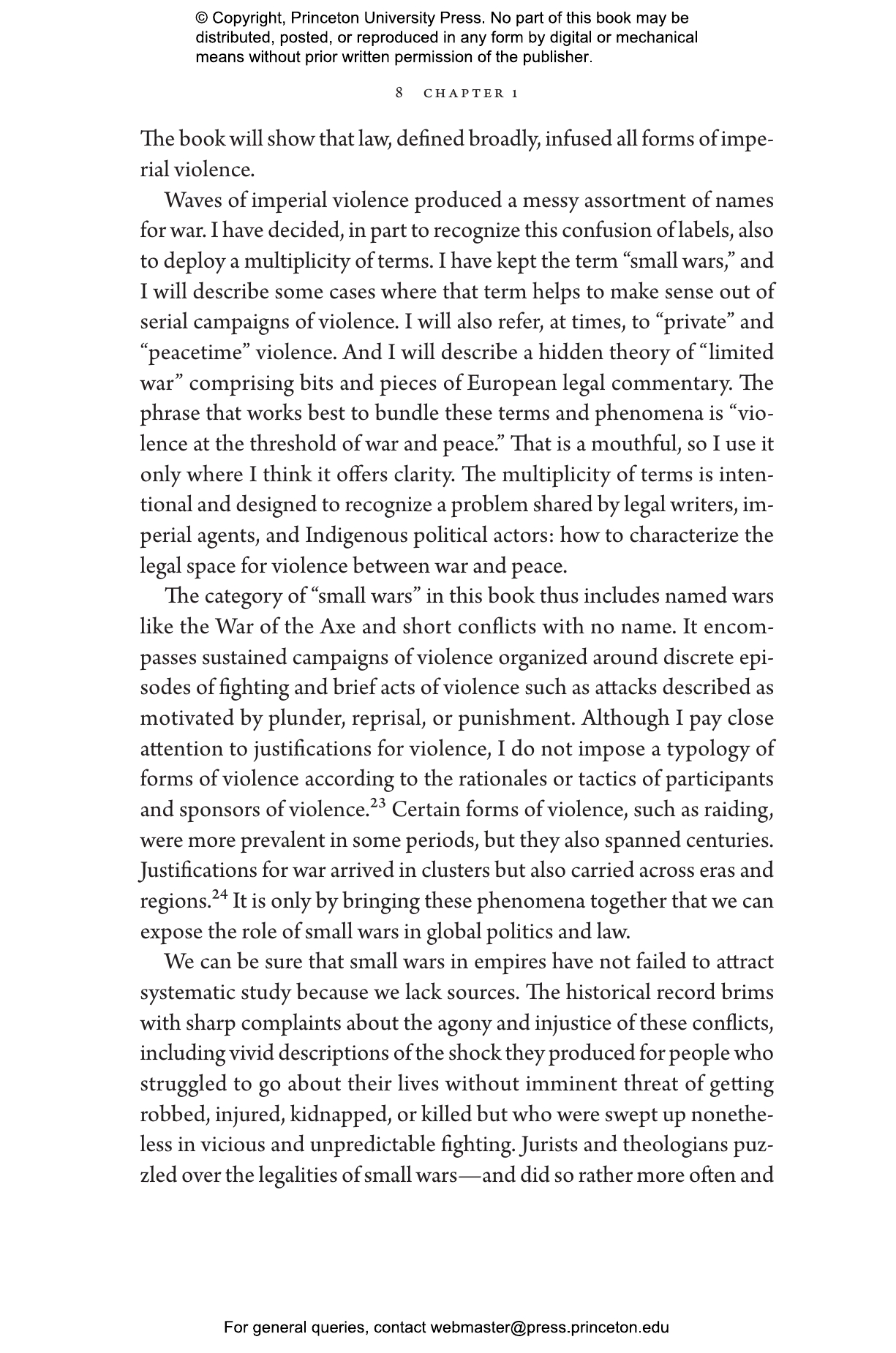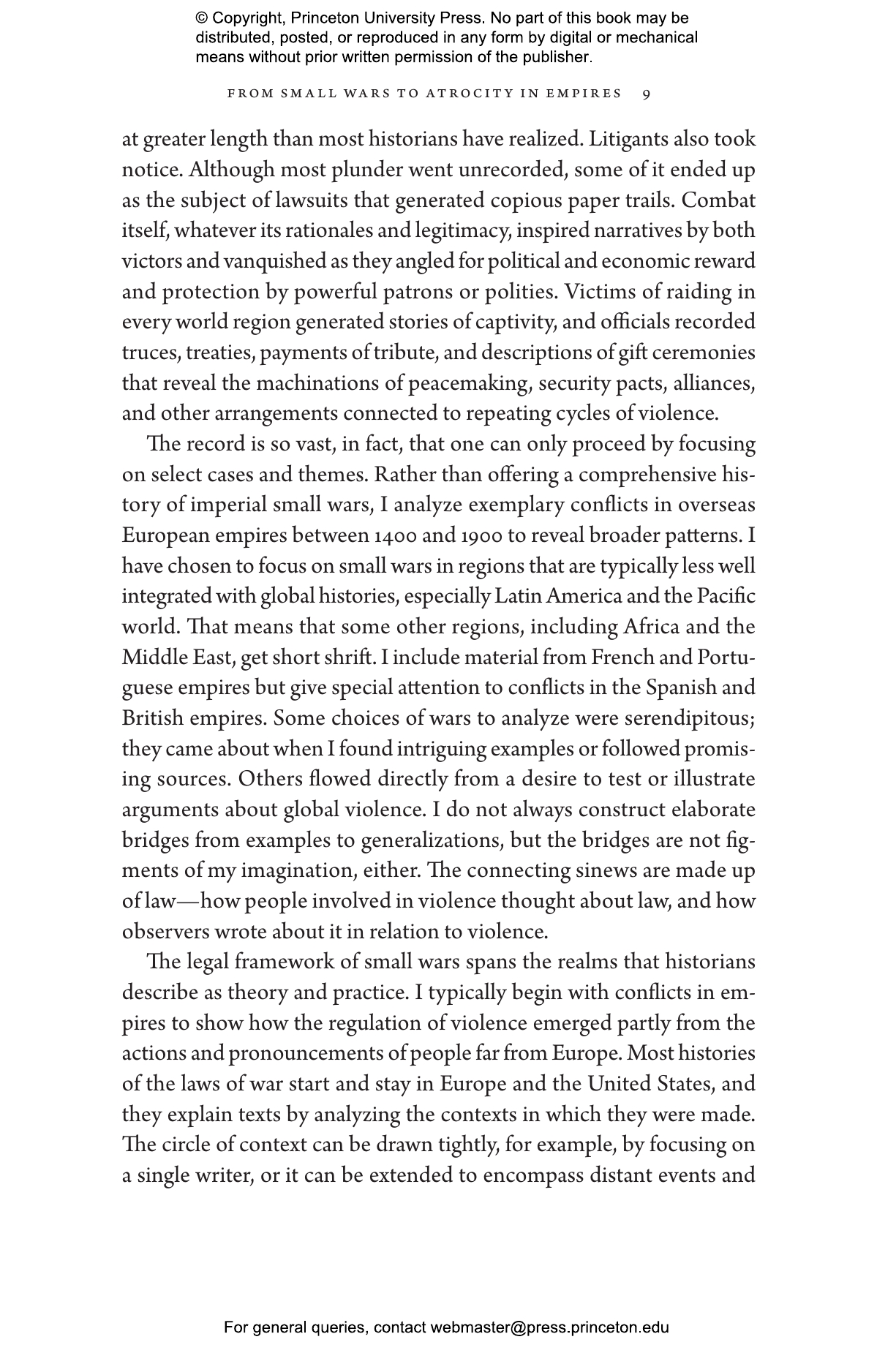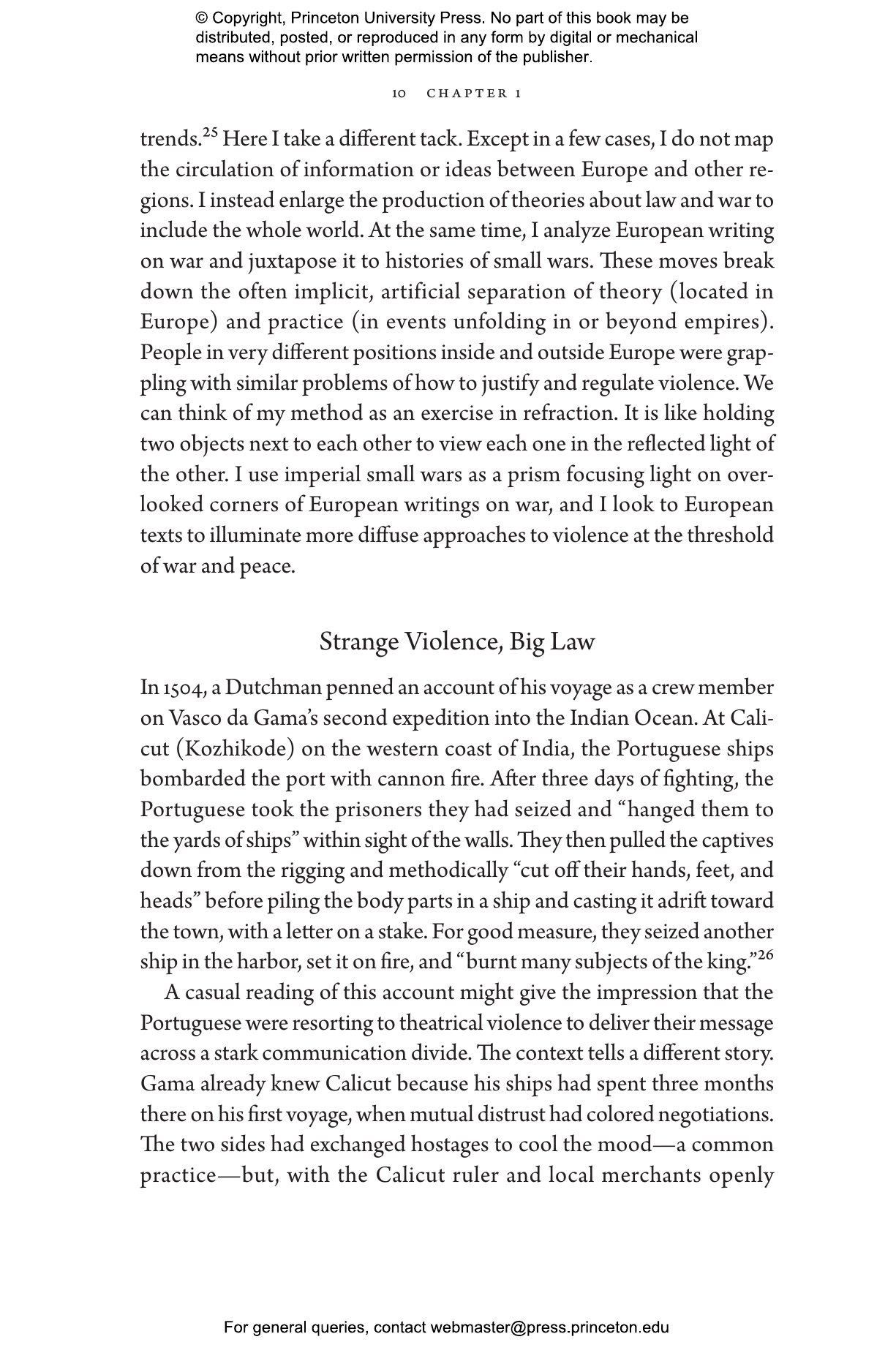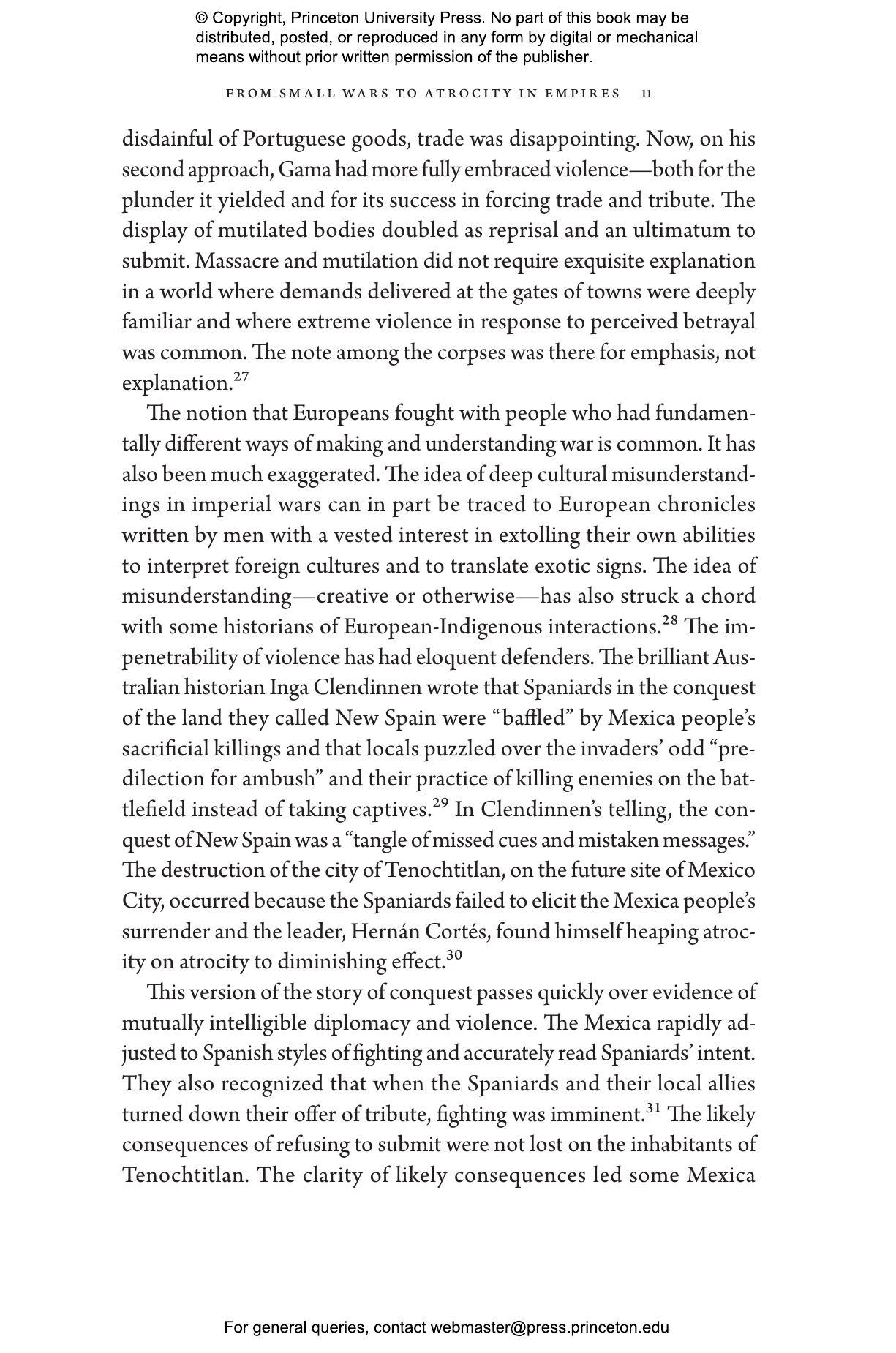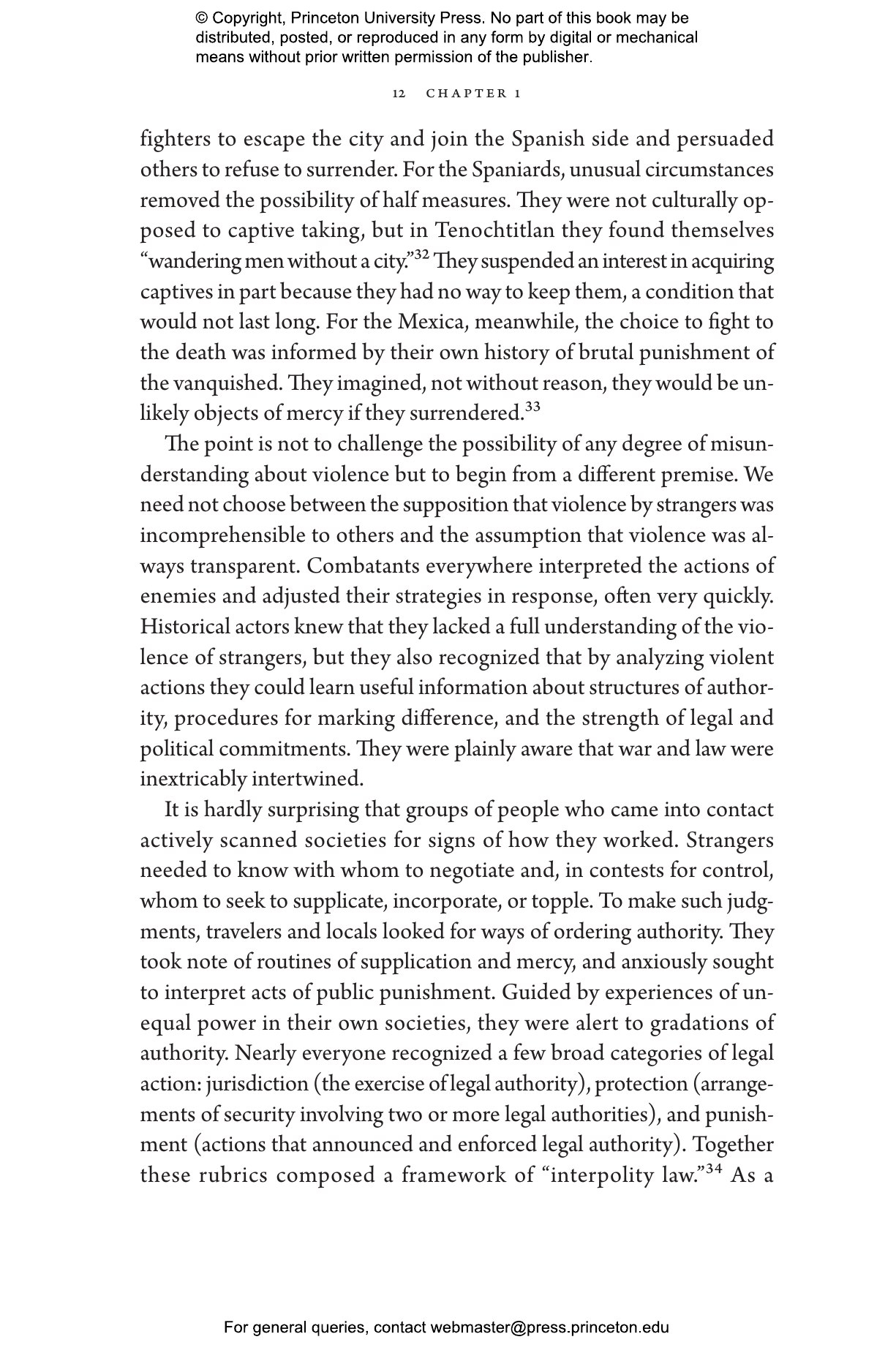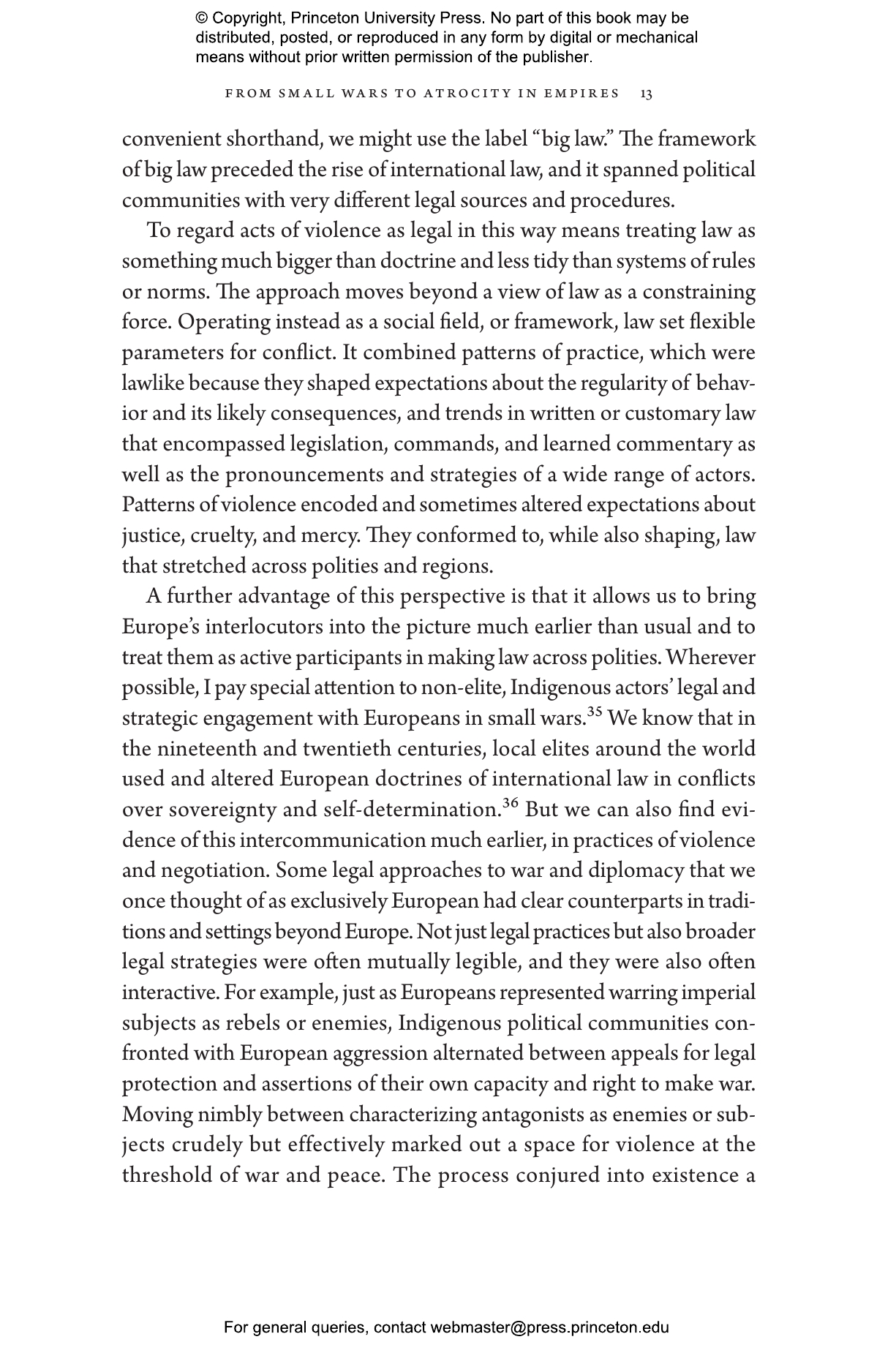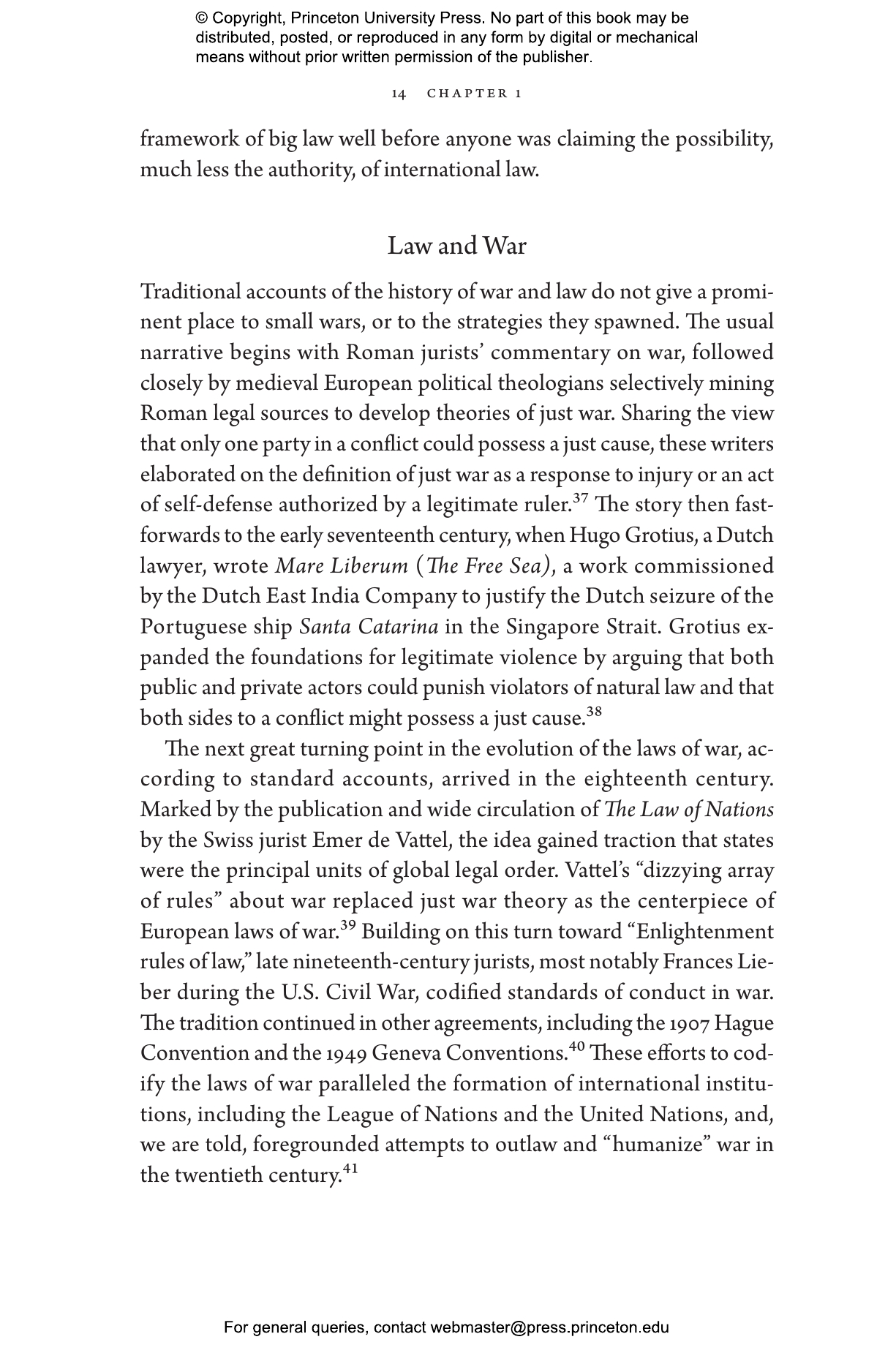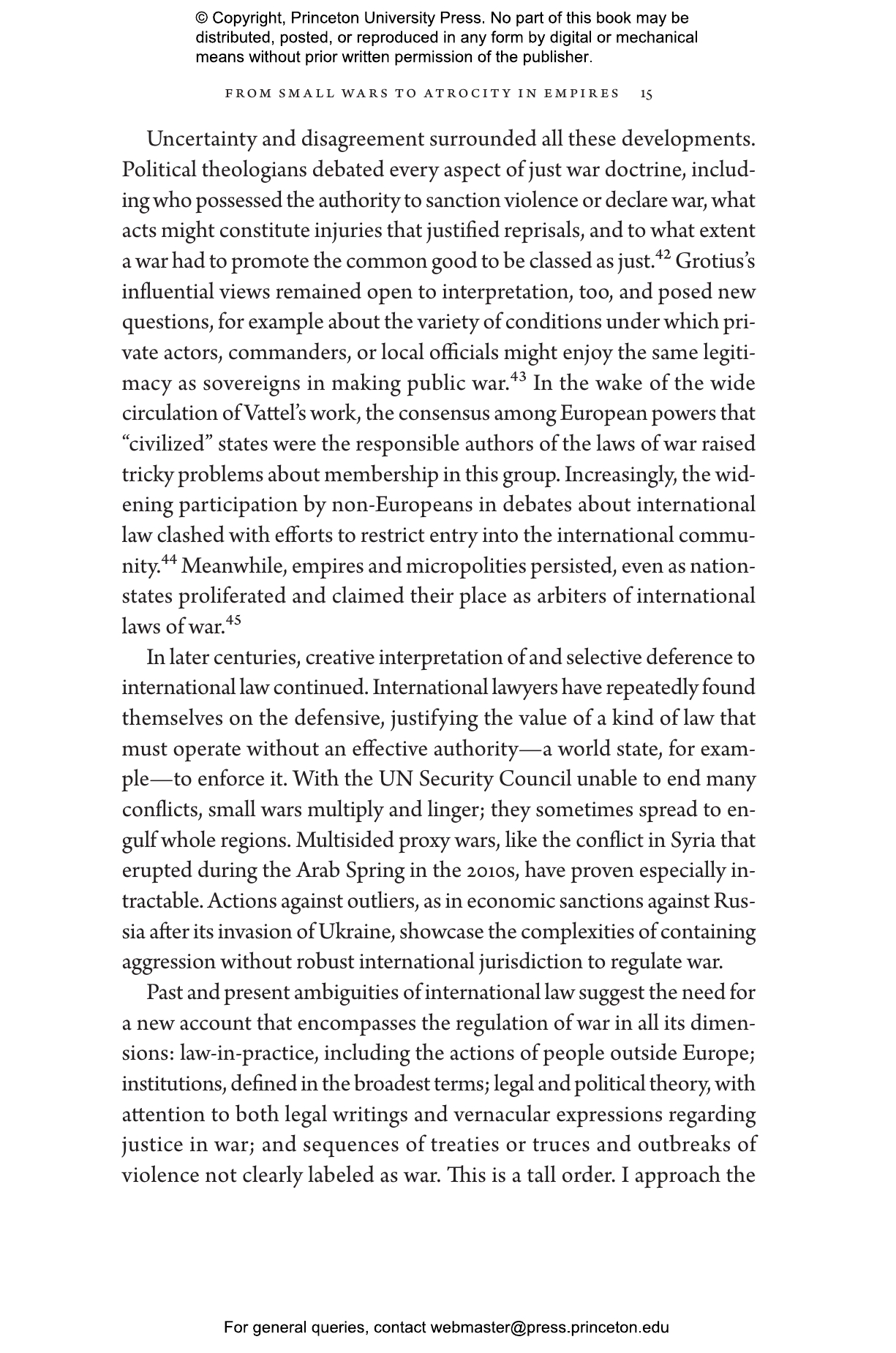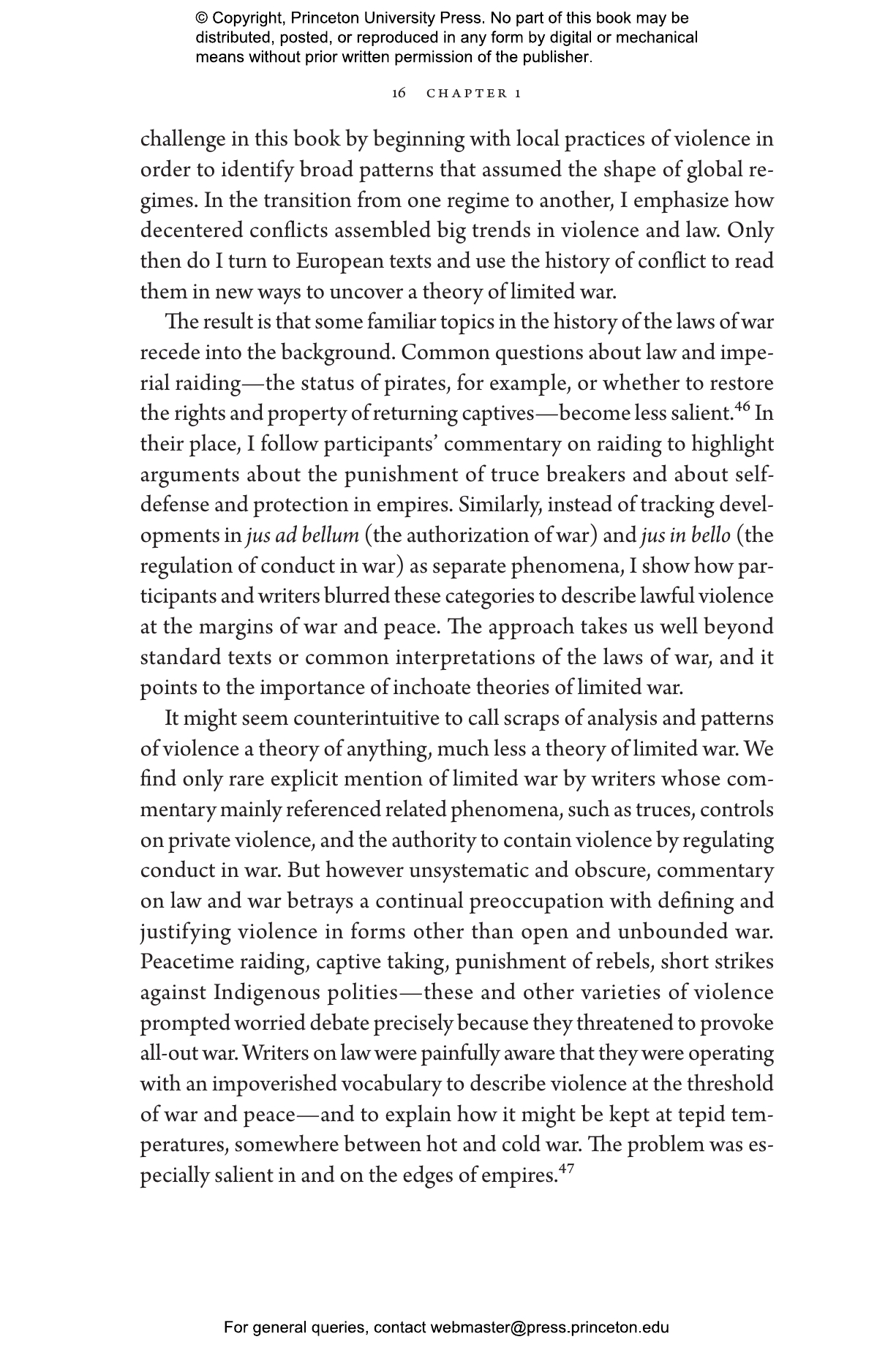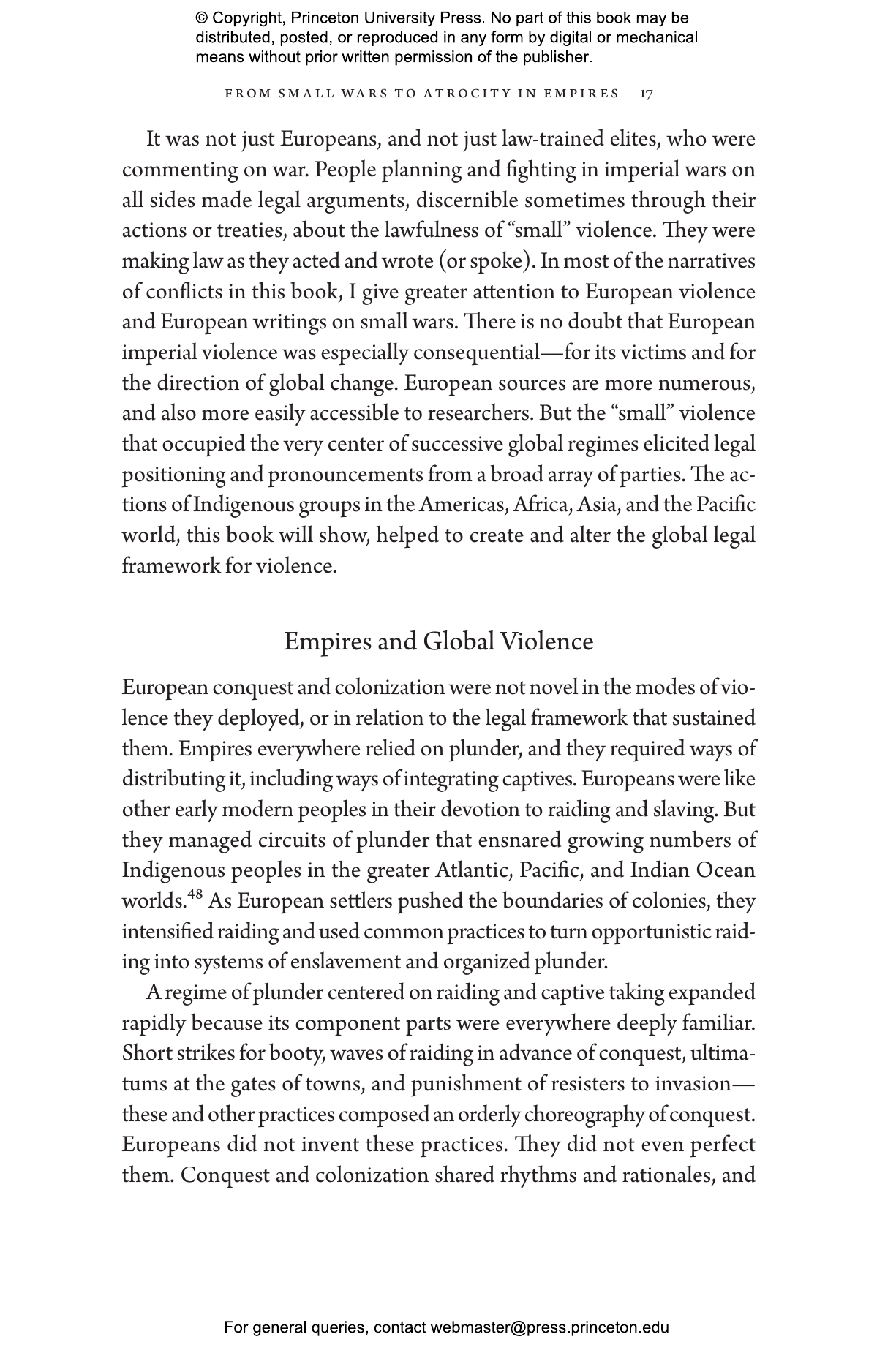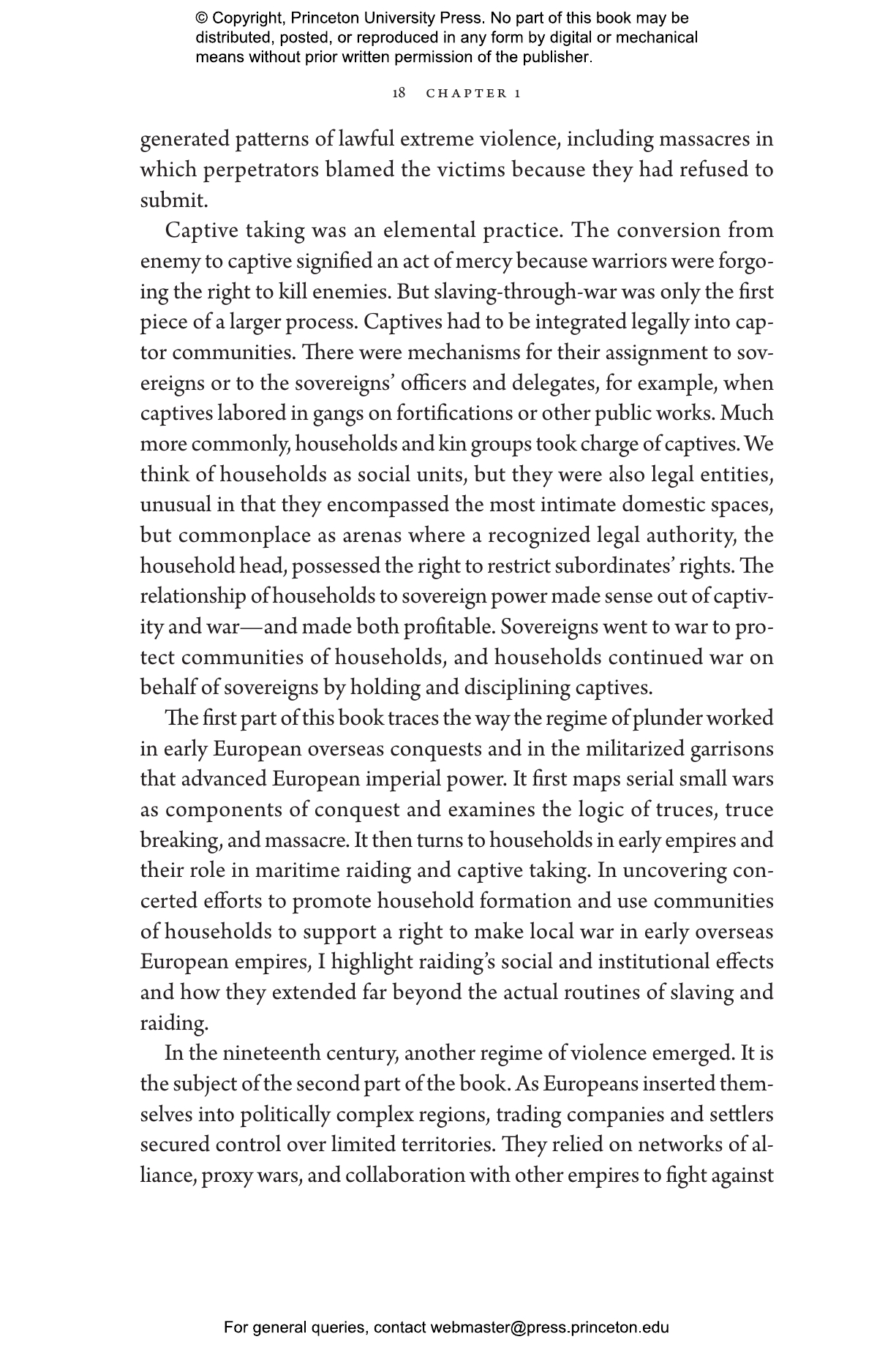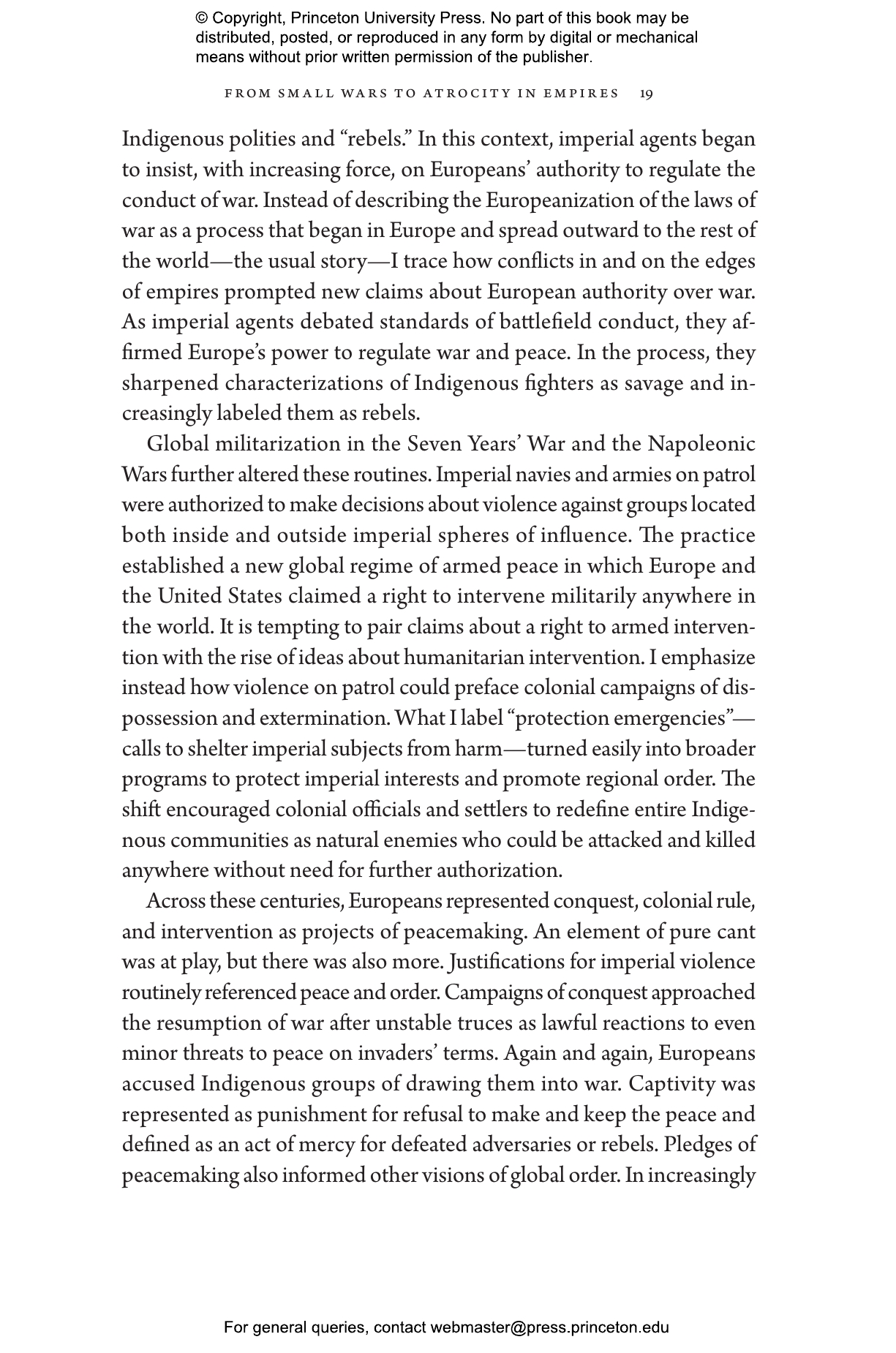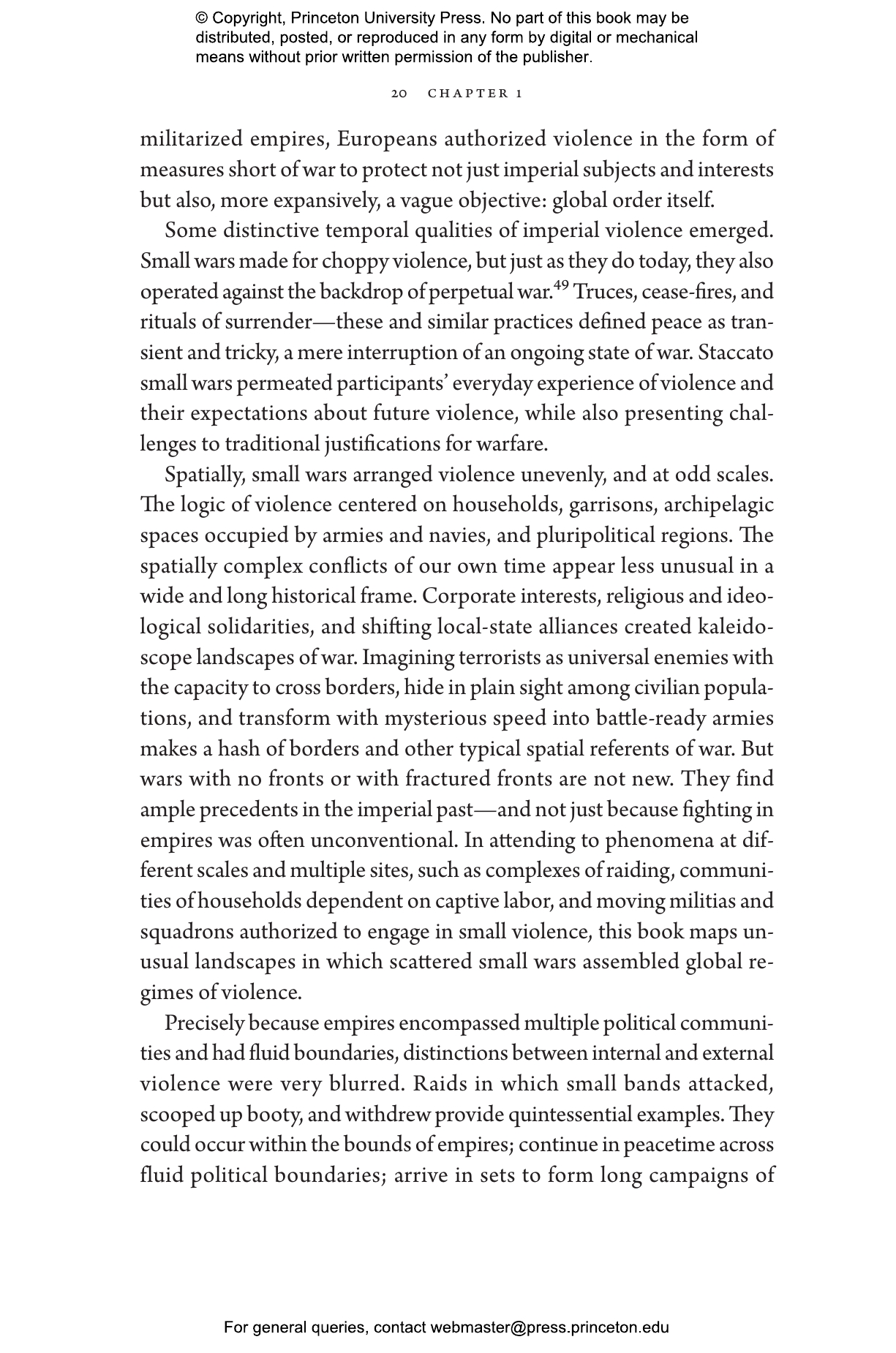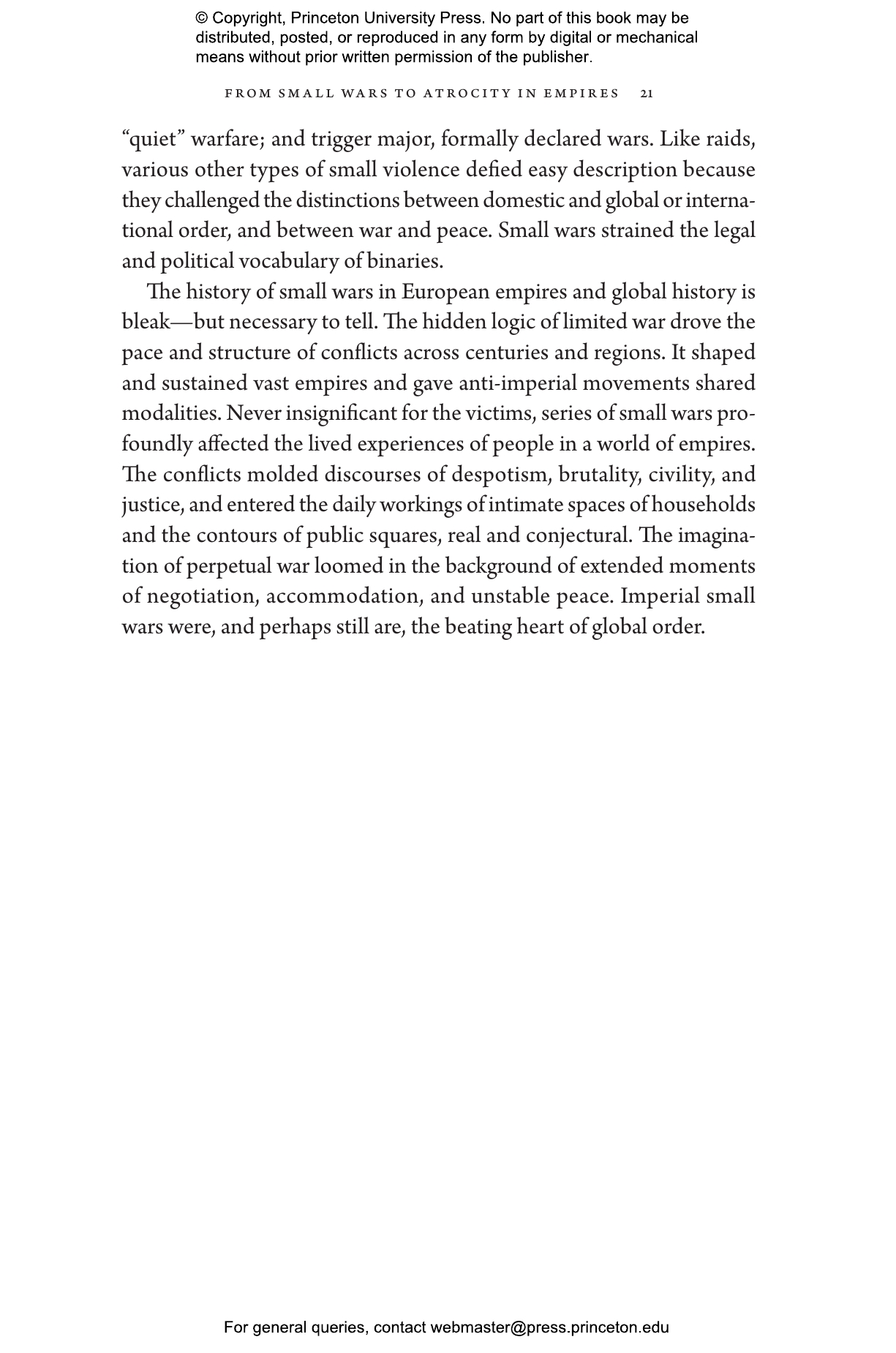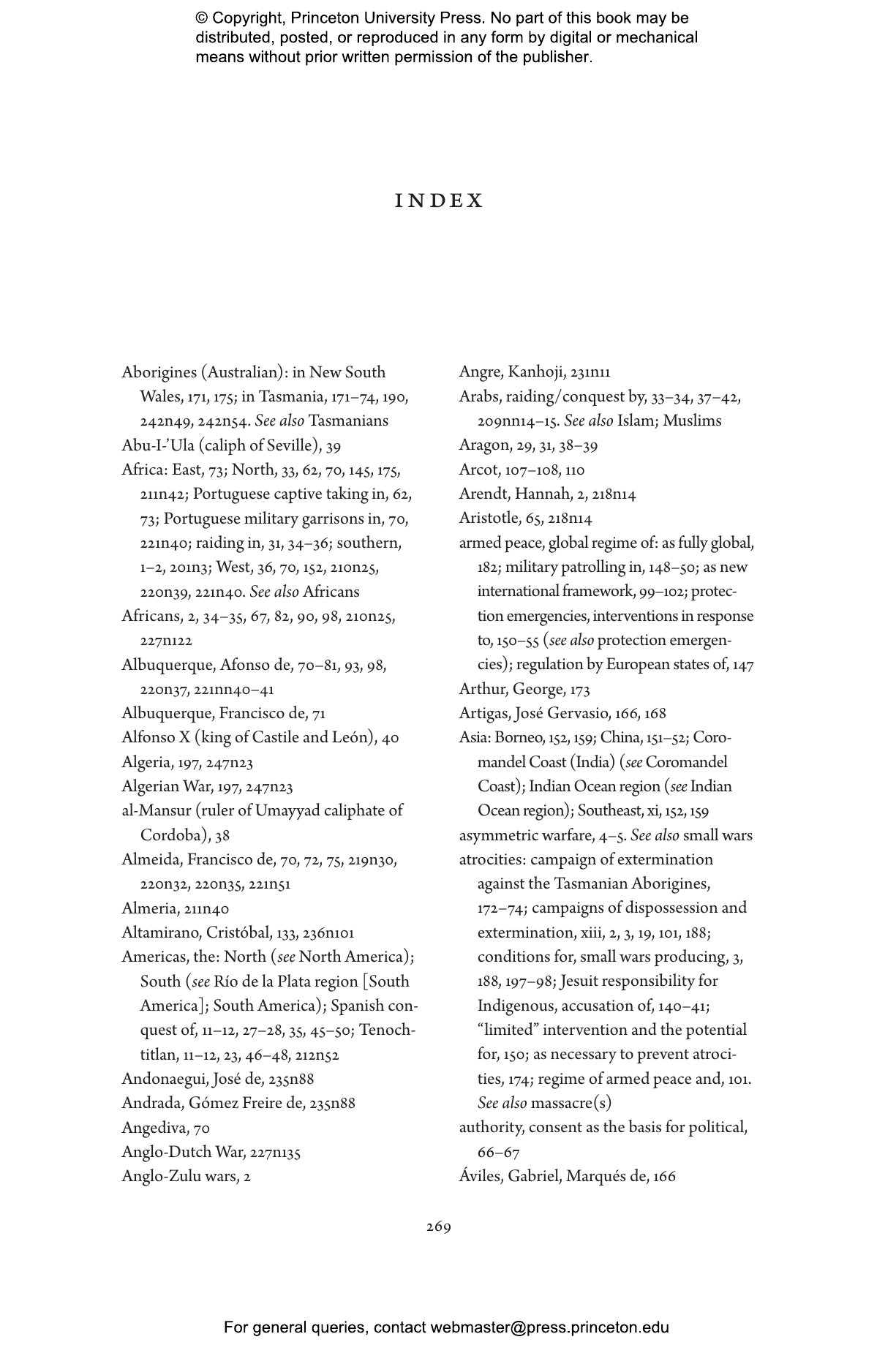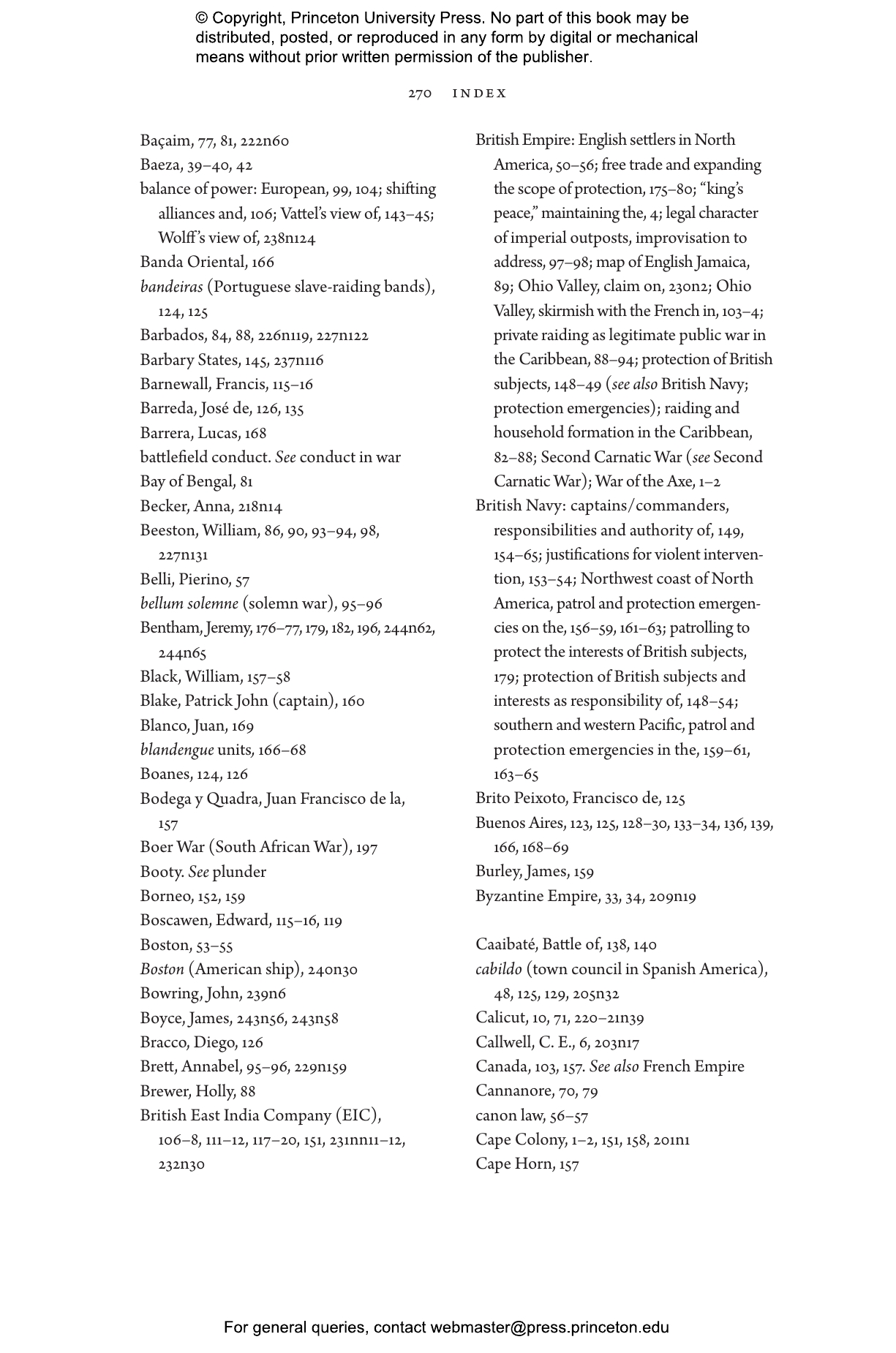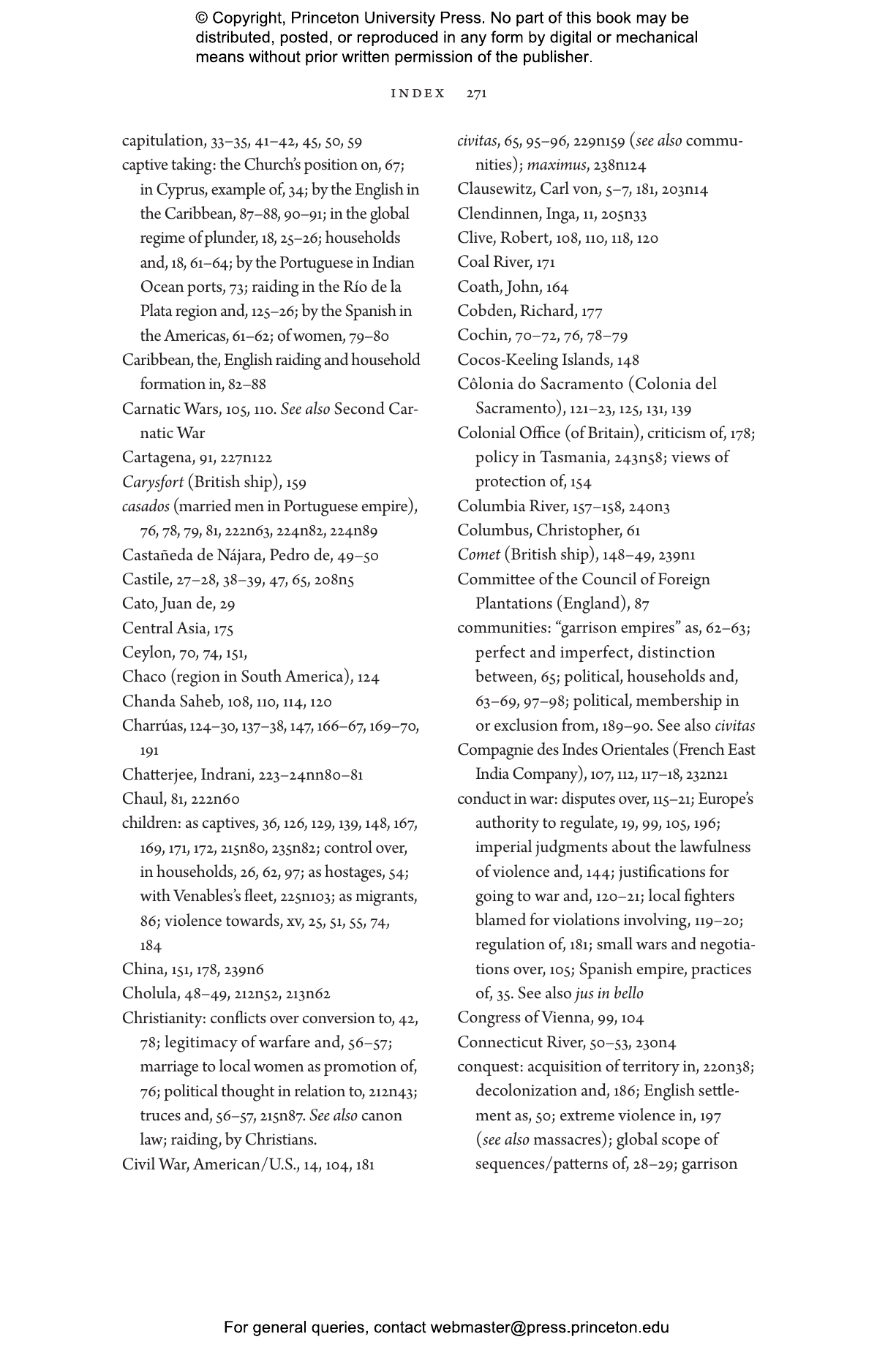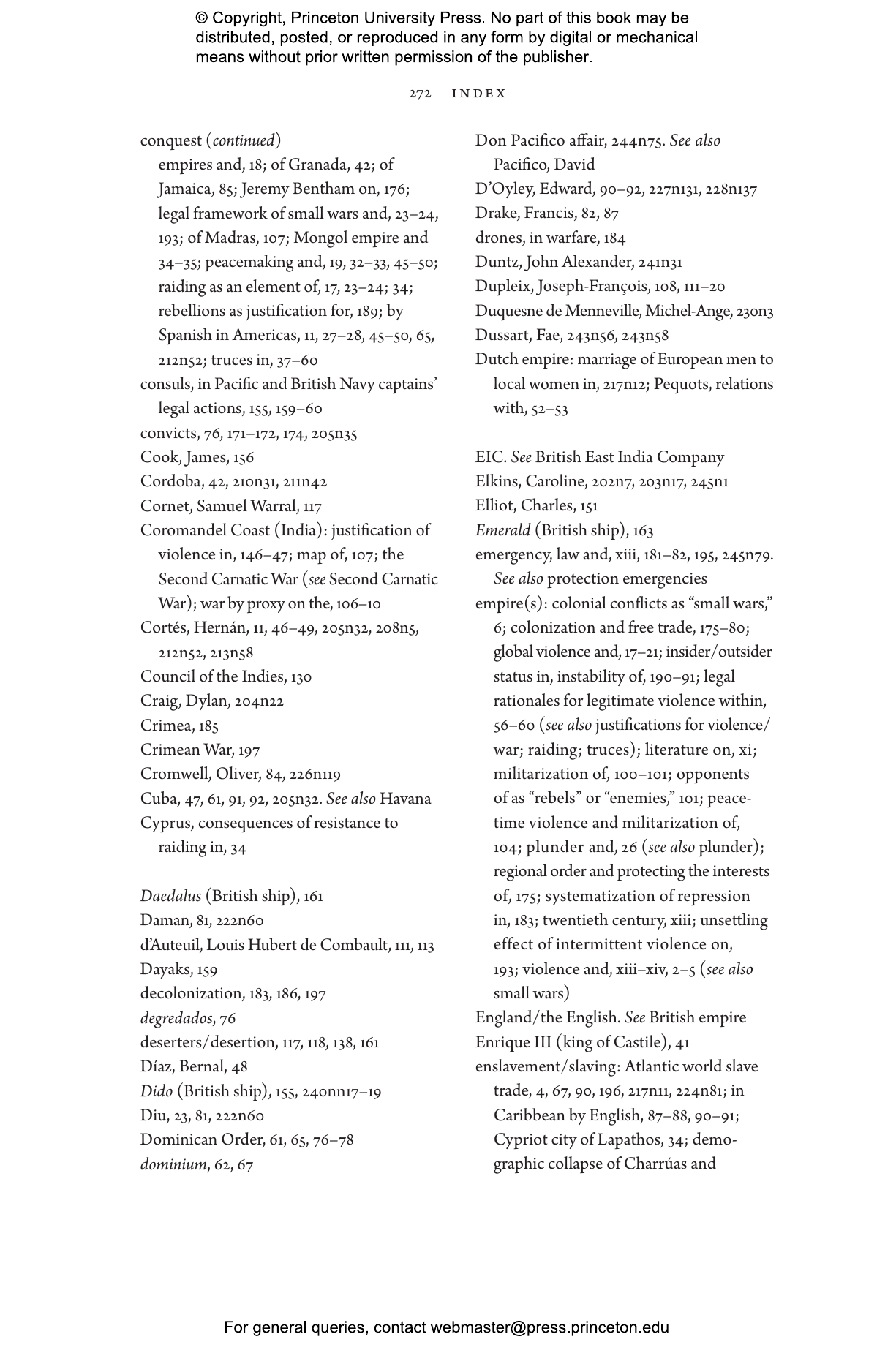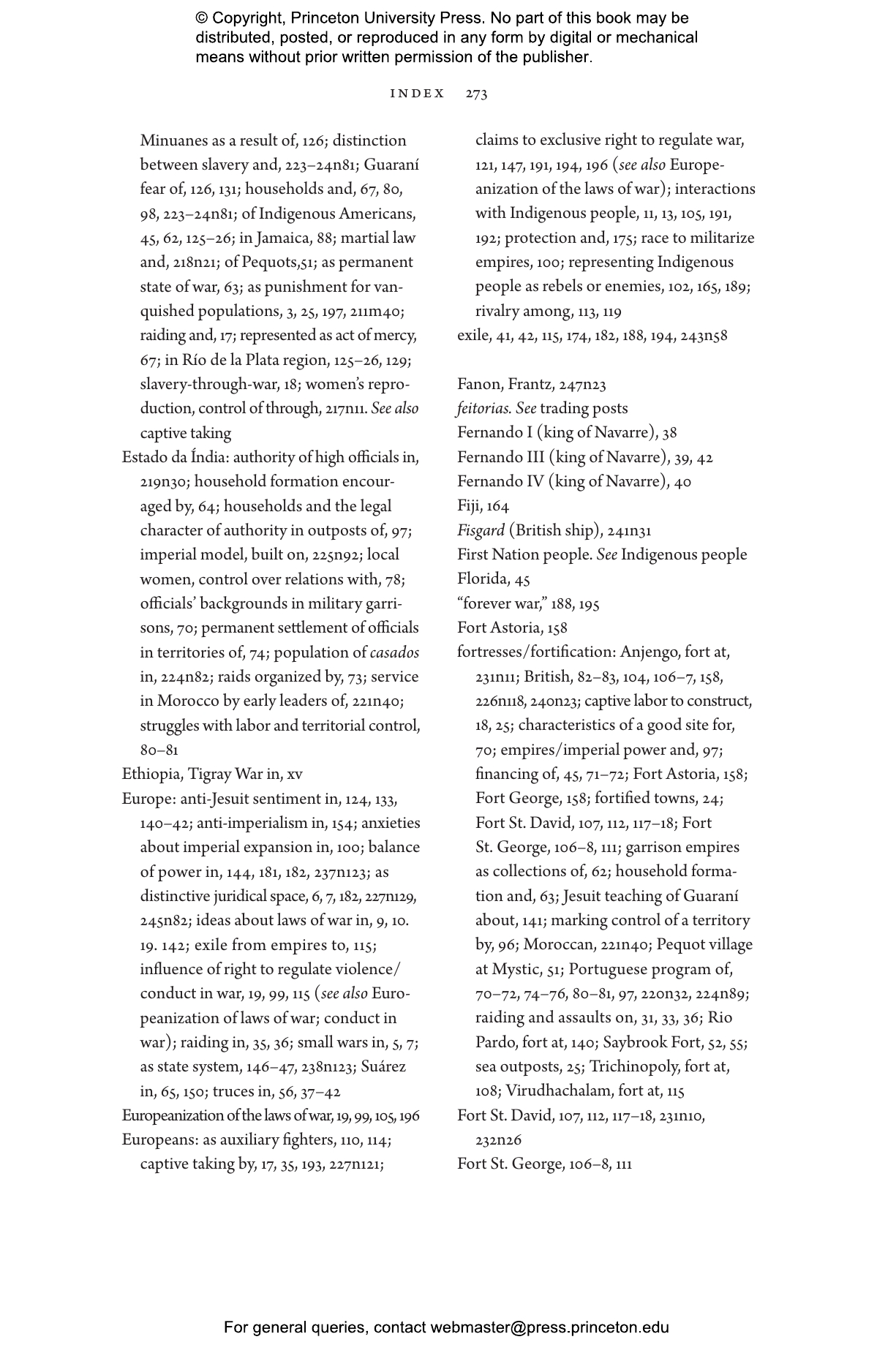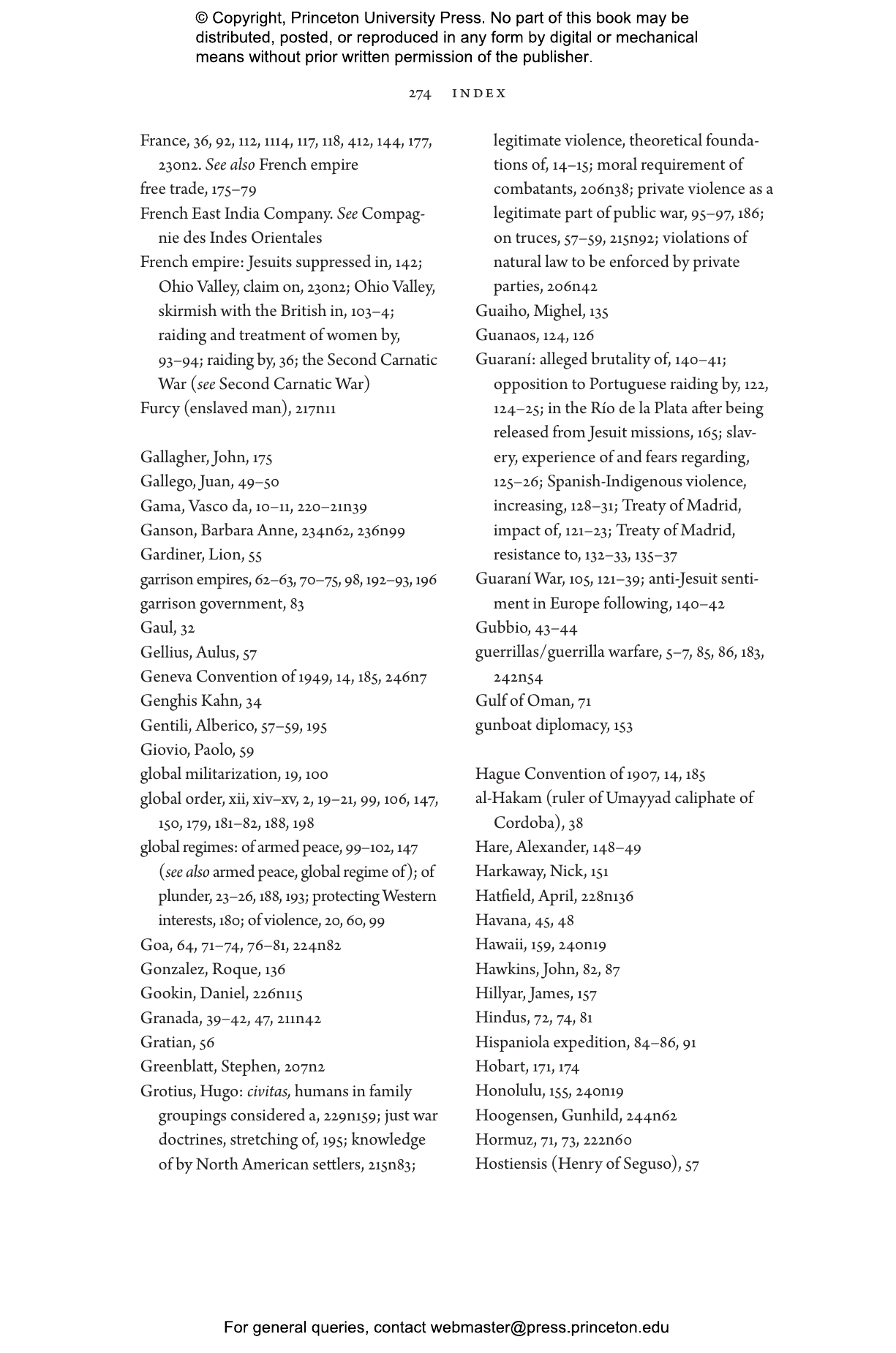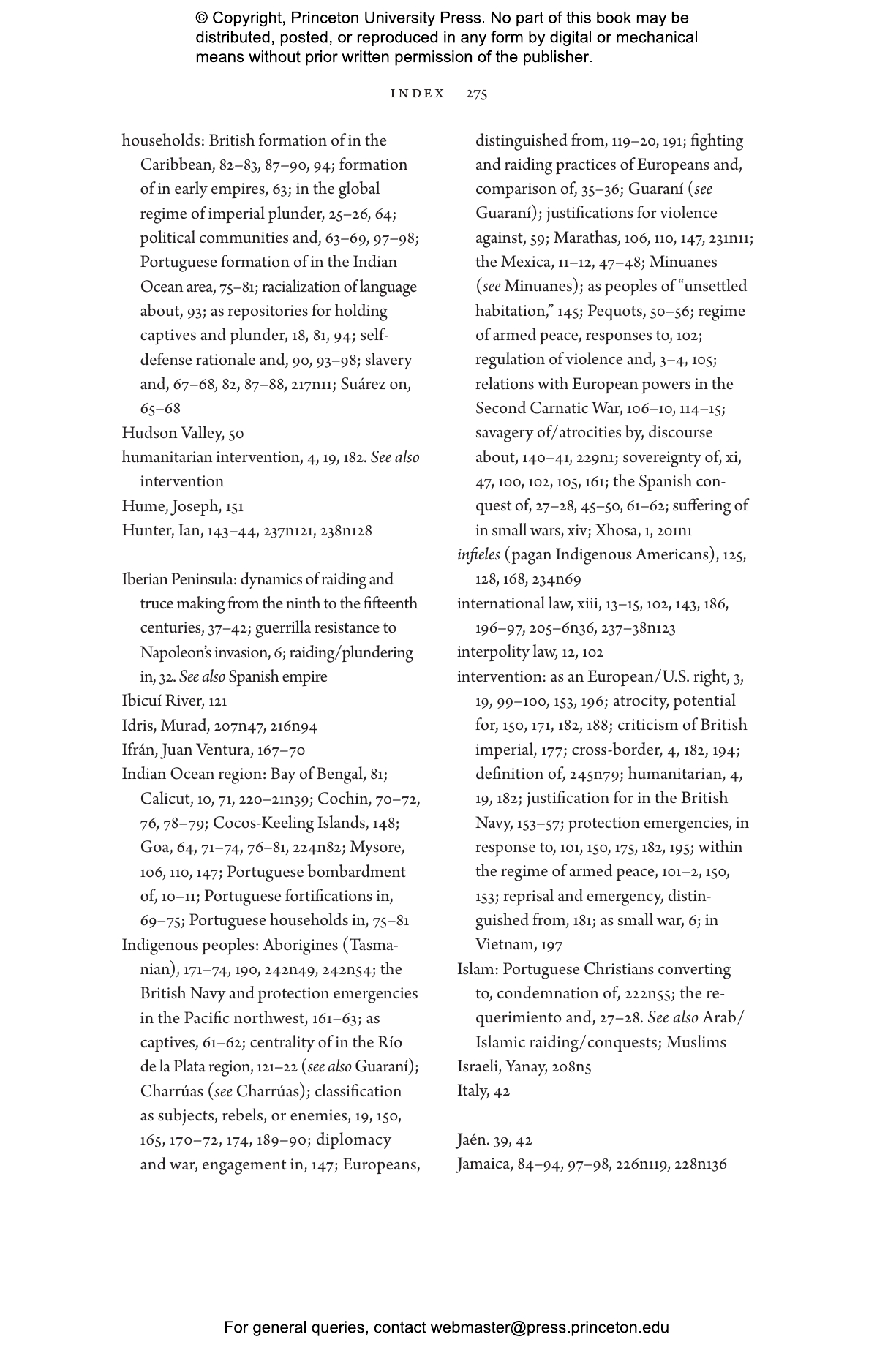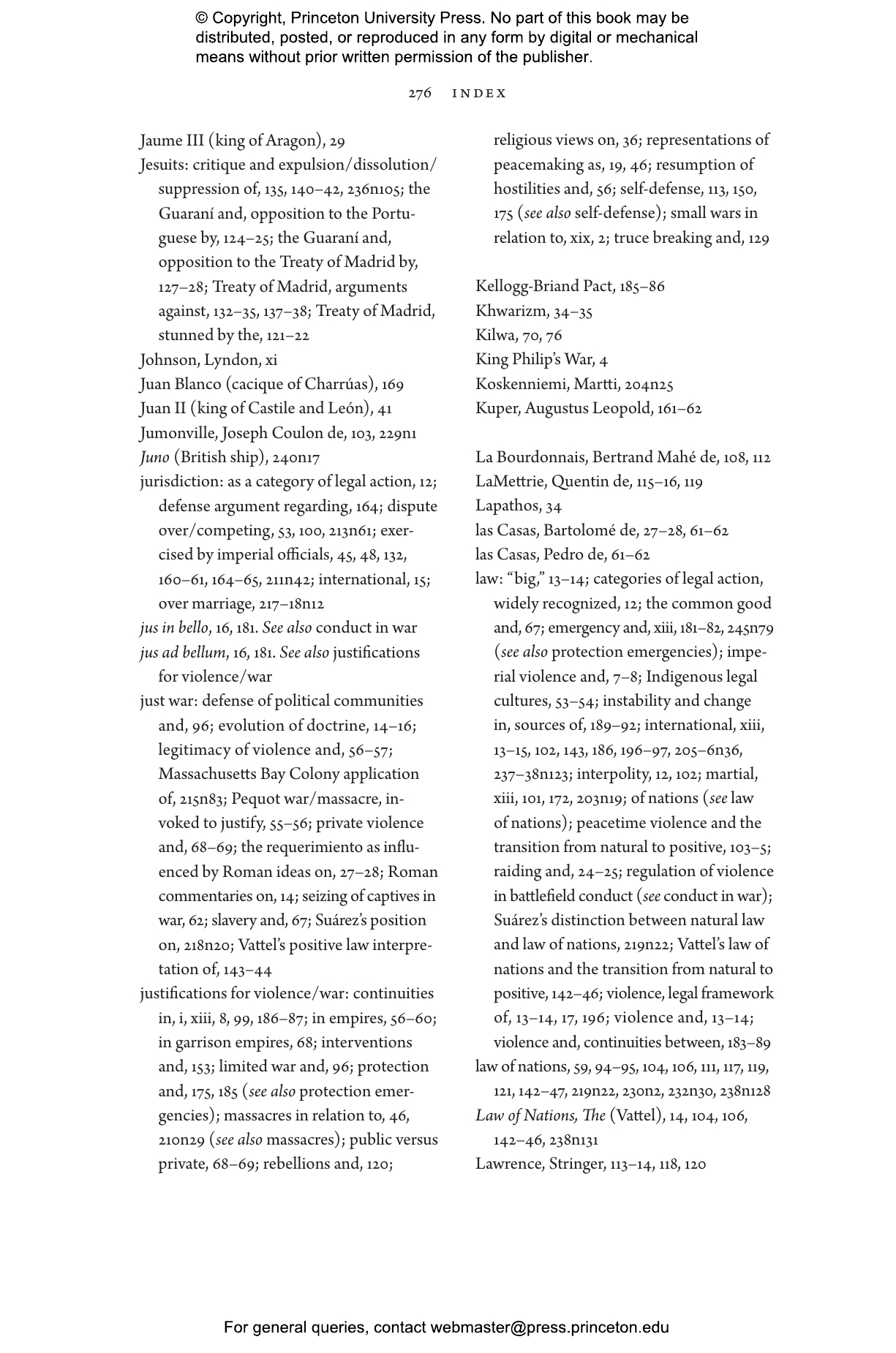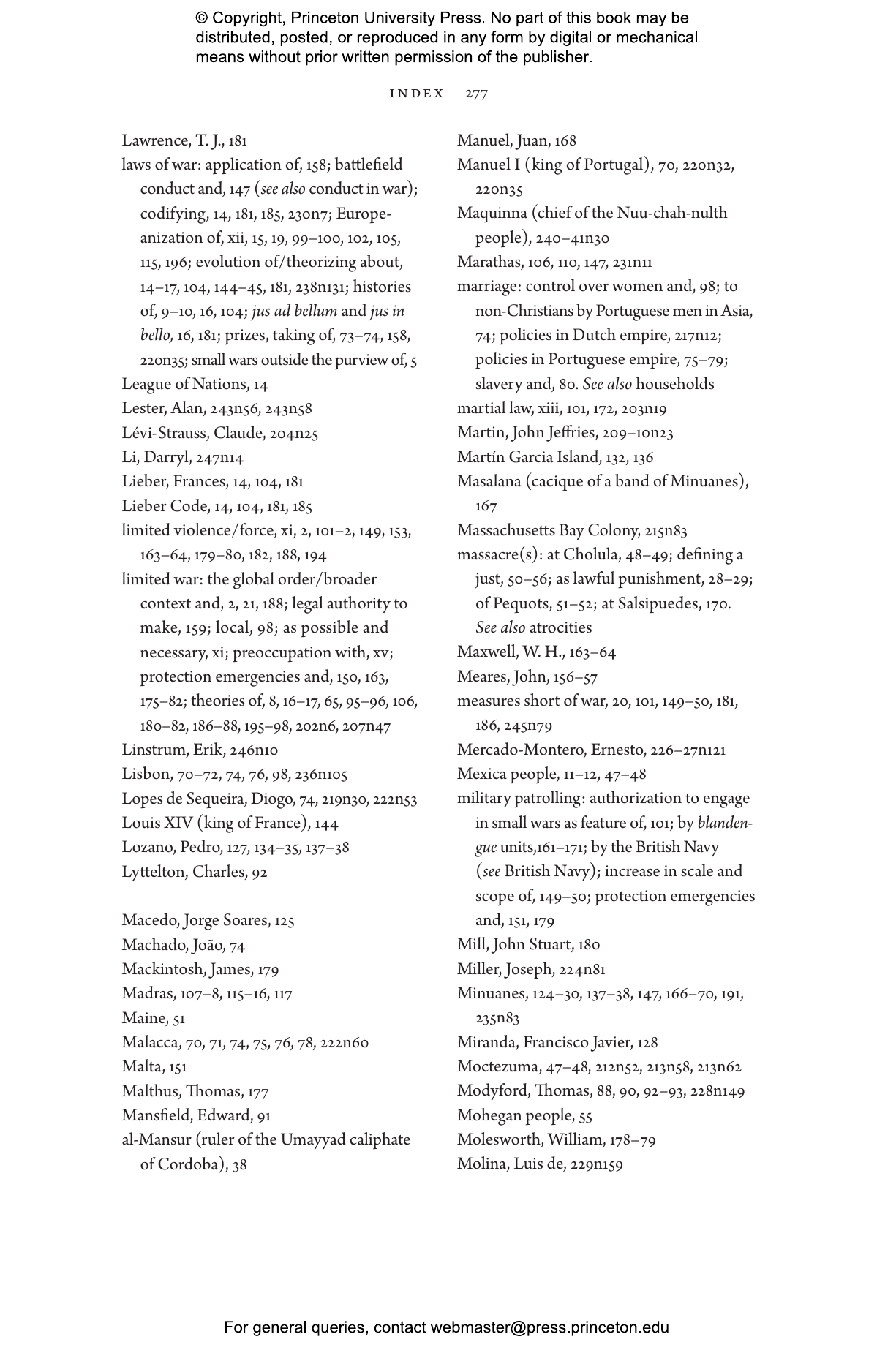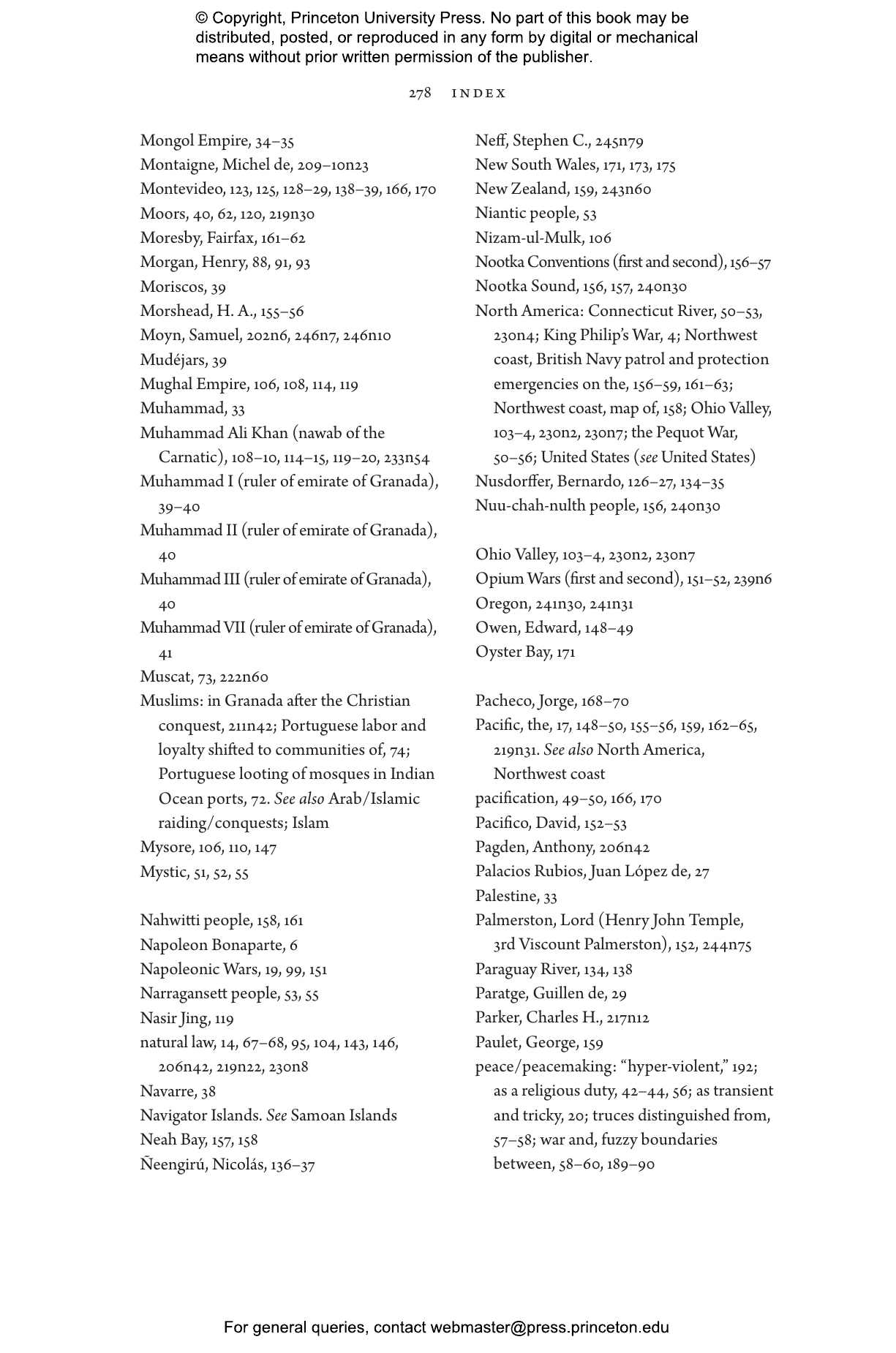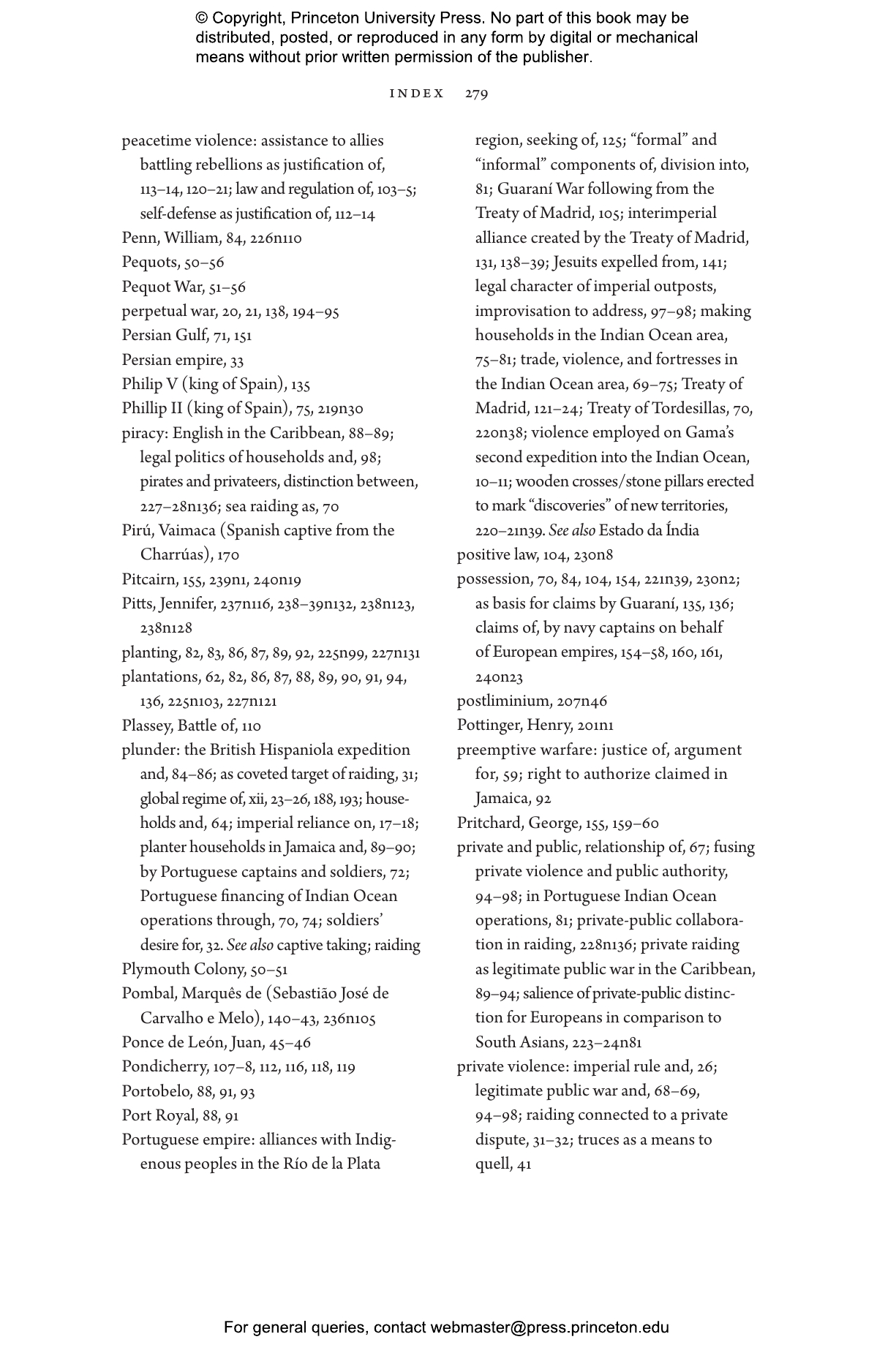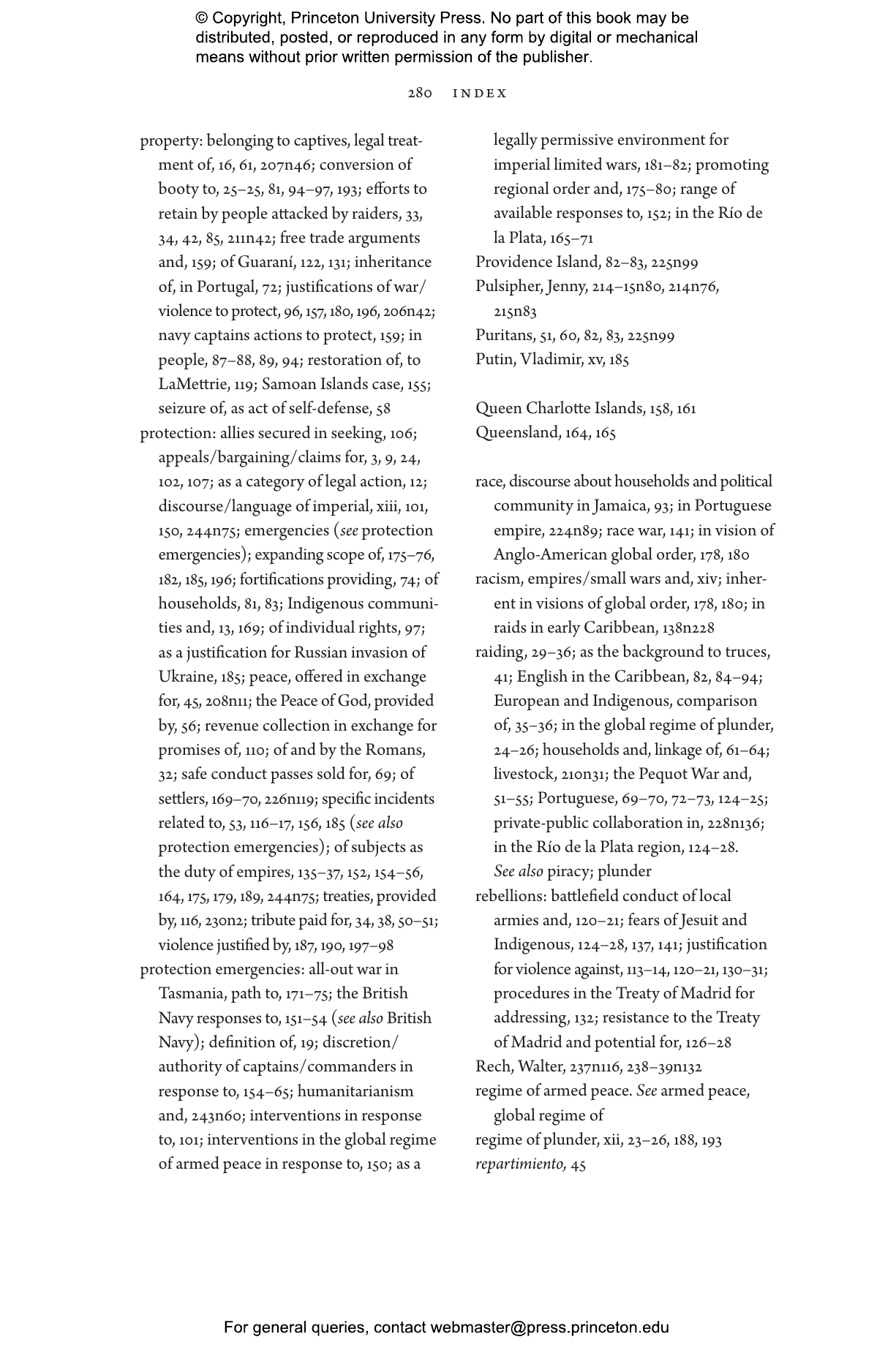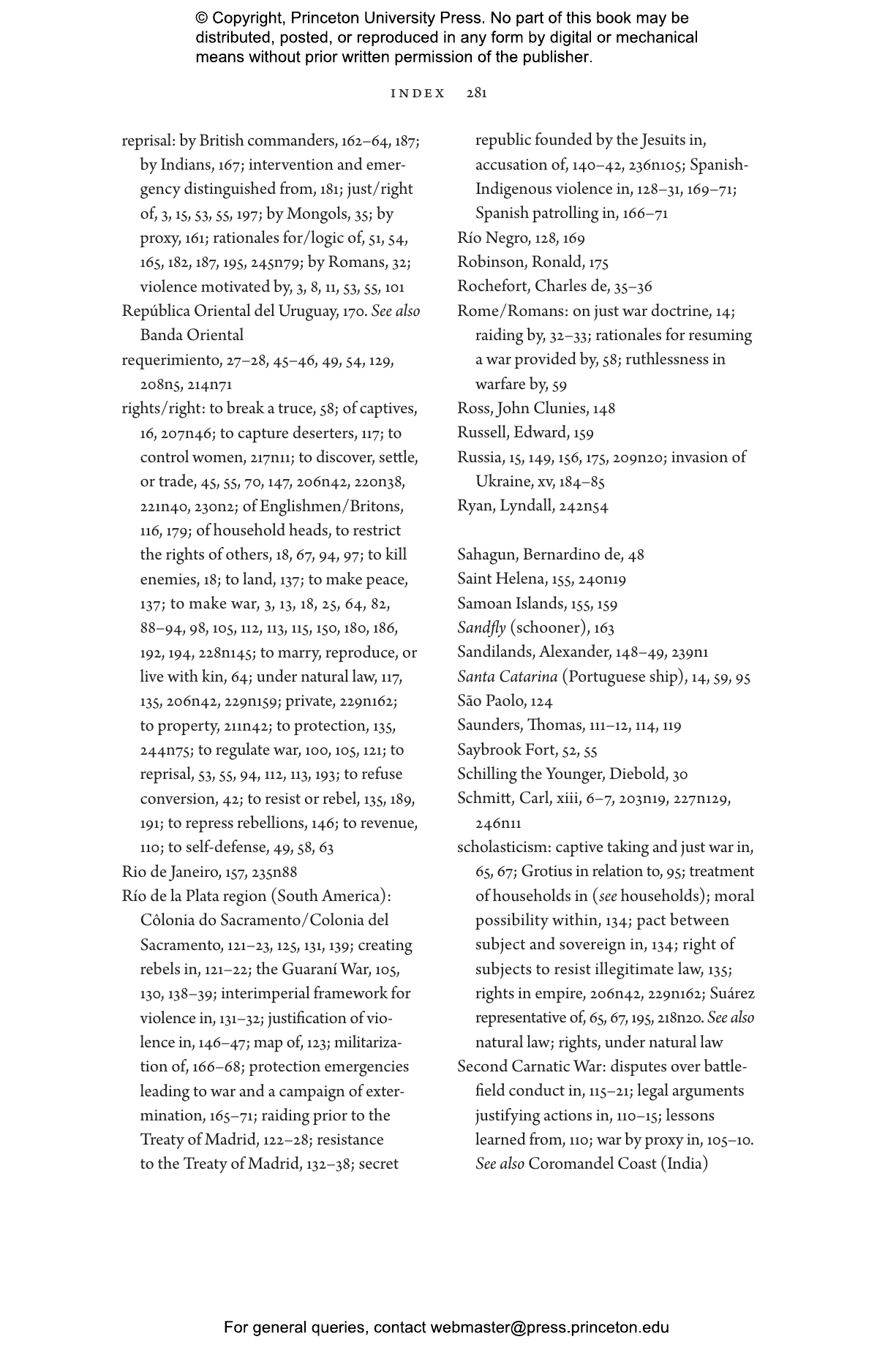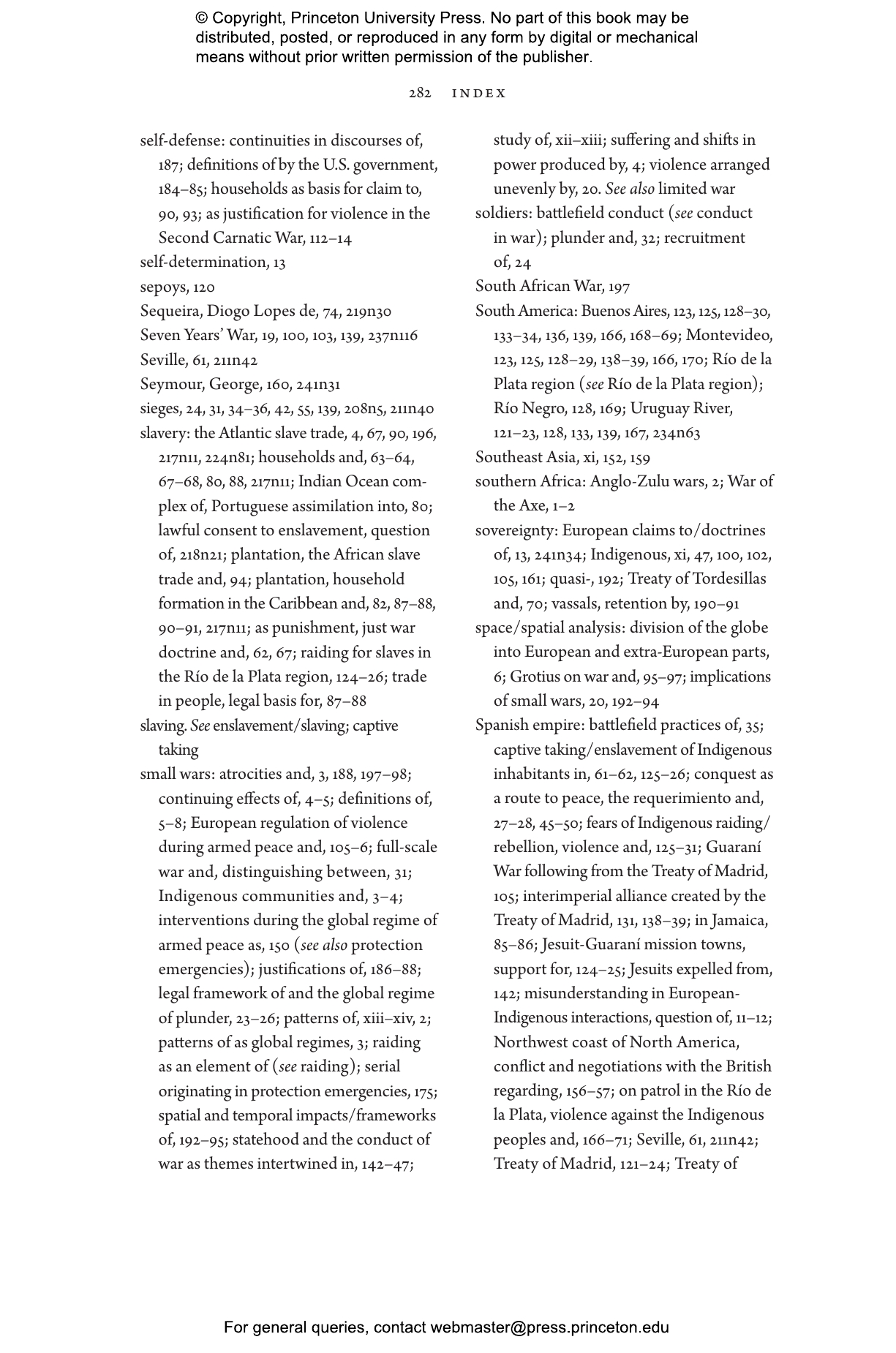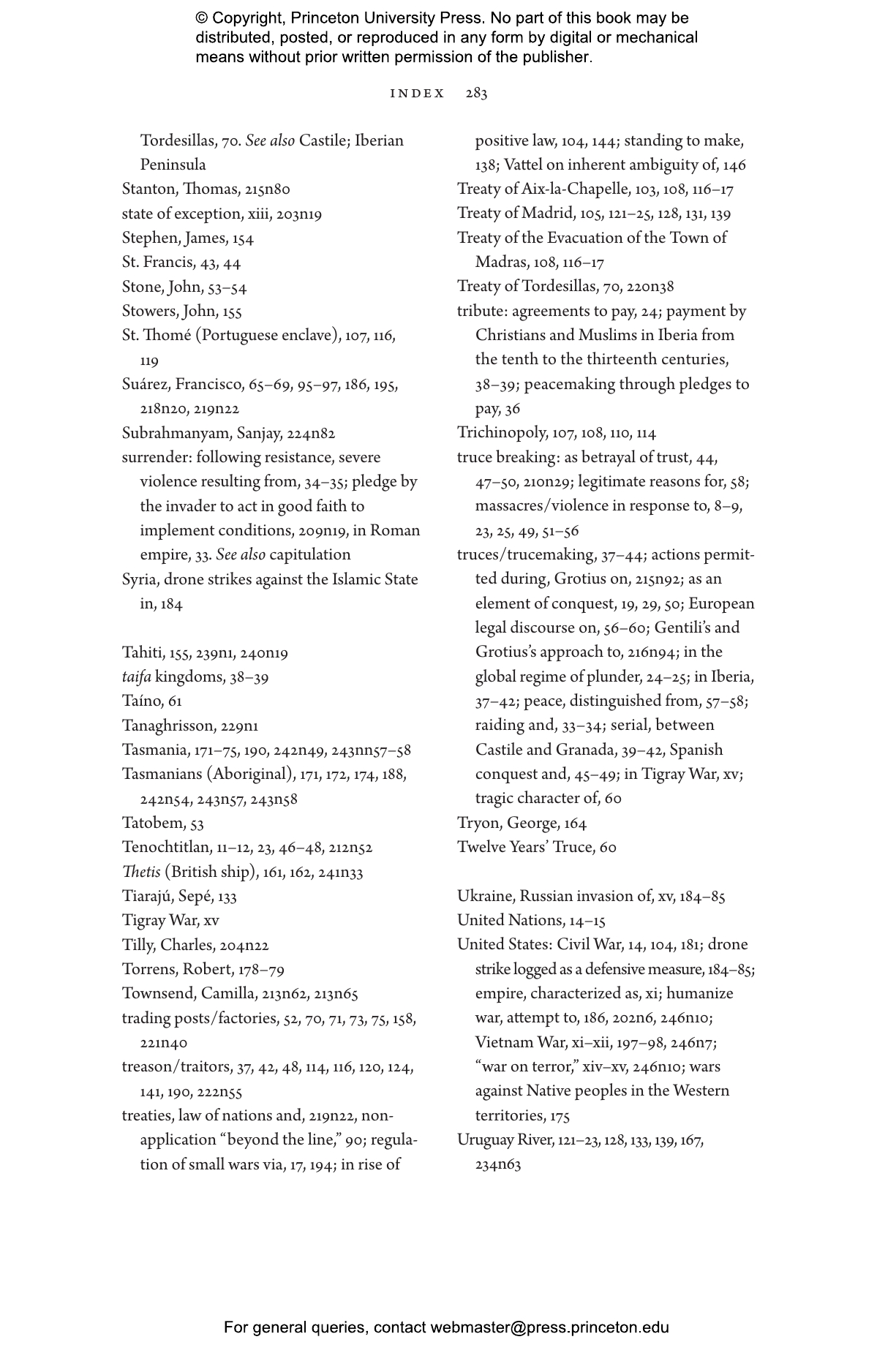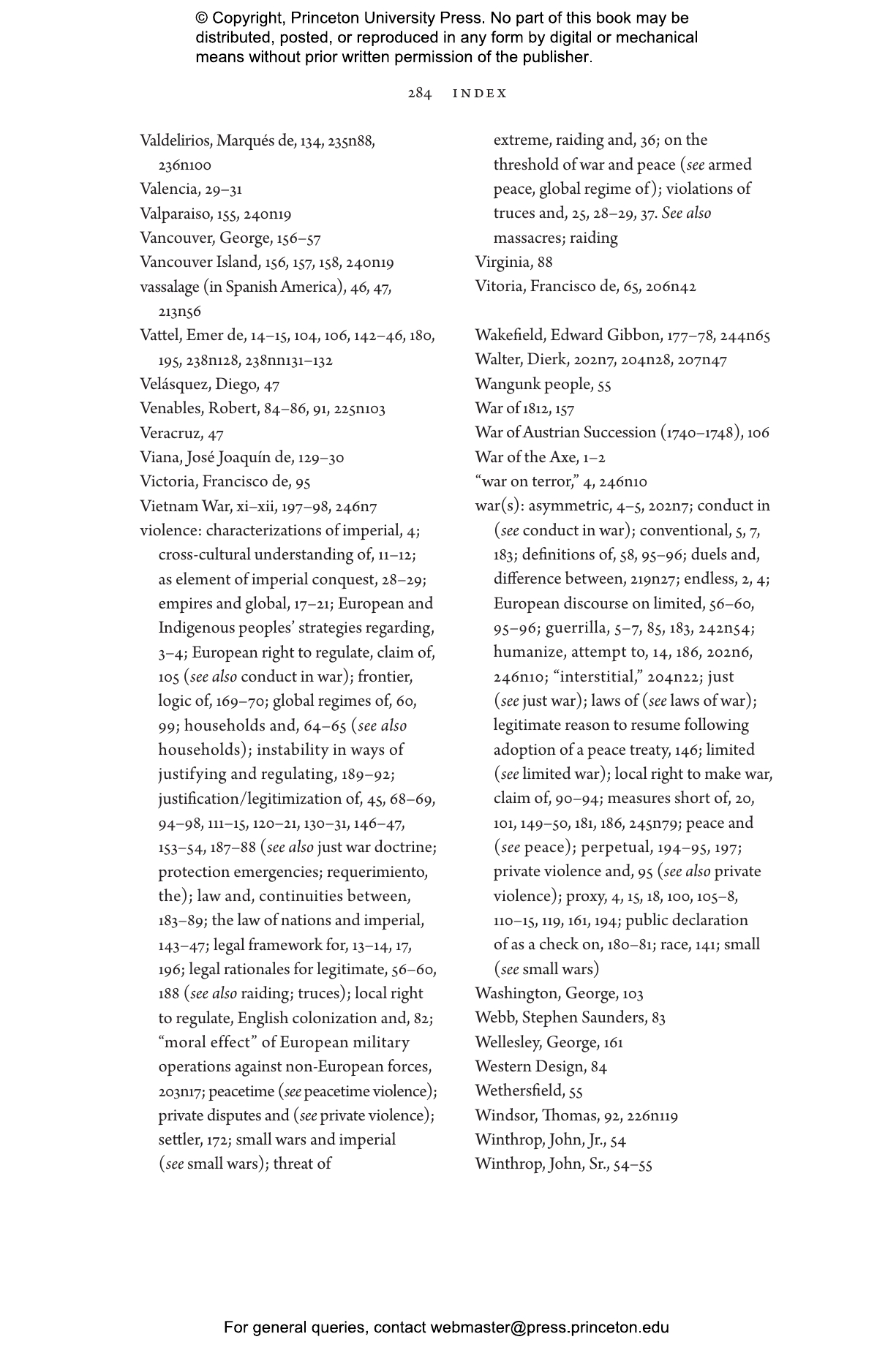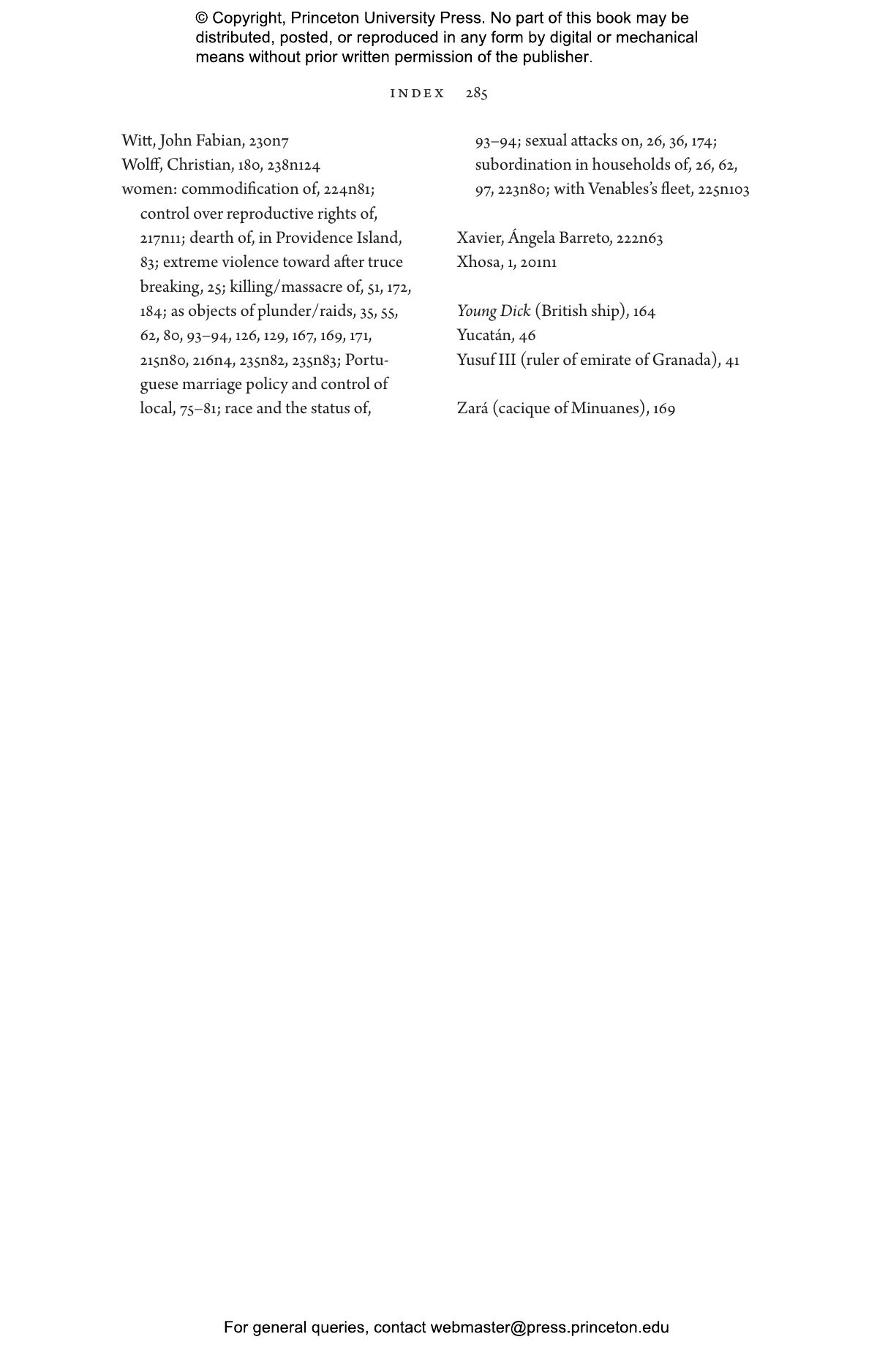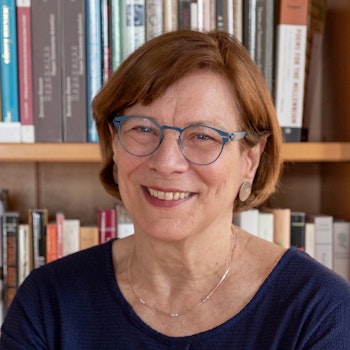Imperial conquest and colonization depended on pervasive raiding, slaving, and plunder. European empires amassed global power by asserting a right to use unilateral force at their discretion. They Called It Peace is a panoramic history of how these routines of violence remapped the contours of empire and reordered the world from the fifteenth to the twentieth centuries.
In an account spanning from Asia to the Americas, Lauren Benton shows how imperial violence redefined the very nature of war and peace. Instead of preparing lasting peace, fragile truces ensured an easy return to war. Serial conflicts and armed interventions projected a de facto state of perpetual war across the globe. Benton describes how seemingly limited war sparked atrocities, from sudden massacres to long campaigns of dispossession and extermination. She brings vividly to life a world in which warmongers portrayed themselves as peacemakers and Europeans imagined “small” violence as essential to imperial rule and global order.
Holding vital lessons for us today, They Called It Peace reveals how the imperial violence of the past has made perpetual war and the threat of atrocity endemic features of the international order.
Awards and Recognition
- A New Yorker Best Book We've Read This Year
- Longlisted for the Cundill History Prize, McGill University
- Shortlisted for the Cundill History Prize, McGill University
"a radical and important book."—Christopher Kissane, Irish Times
"A nimble and provocative history."—Michael Ledger-Lomas, Jacobin
"Benton...uses harrowing case studies from around the world, and contextualizes events within the work of contemporary intellectuals."—New Yorker
"The book offers a strikingly original account not only of the significance of the proliferation of small wars across the globe; but of how what came to be called 'international law' was deployed by European powers . . . a remarkable achievement."—Anthony Pagden, Journal of Early Modern History
"A thoughtful short history of imperial violence. . . . Recommended."—Choice Reviews
"The book spans centuries of history, delving into accounts of imperialist violence from Asia to South America, often focusing on lesser-known victims of imperialist violence."—Sophie Squire, Socialist Worker
"Highly original."—David Lorimer, Paradigm Explorer
"No one has been more articulate than Benton in showing how ‘the regime of armed peace mapped clear pathways from lawful interventions with modest objectives to brutal campaigns of dispossession and extermination. . . a move from treating individuals as criminals to defining whole communities as natural enemies.’"—Ron Slate, On the Seawall
“With characteristic lucidity, subtlety, and grace, Lauren Benton highlights how the boundary between private violence and public war was perpetually blurred and renegotiated across the imperial world. They Called It Peace demonstrates that small wars have had outsized consequences for world order both in the past and enduringly into the present.”—David Armitage, author of Civil Wars: A History in Ideas
“Elegantly and grippingly written, They Called It Peace works brilliantly with its complex material, bringing out the great range of forms of imperial violence that have proliferated in the space between all-out war and all-out peace and using them to power deeply original historical arguments. Lauren Benton connects contemporary political theory and its categories with raids and treaty making in a way that is unusual, always illuminating and never forced. The topicality of this rigorous and exciting book is obvious: as Benton shows, we live in a world shaped by the legacy of ‘small wars’ and by their persistence in the present.”—Christopher Clark, author of The Sleepwalkers: How Europe Went to War in 1914
“Our greatest historian of empire and law is at the height of her powers in this breathtaking reinterpretation of ‘small wars’ that did—and do—massive damage. Lauren Benton reads canonical writers against the backdrop of patterned and routine force across centuries and hears those often omitted from self-congratulatory stories of how the violent weaned themselves from their violence. The results decisively rebuke those exaggerating breakthroughs for humanity or peace in a world of contestation and domination—past and present.”—Samuel Moyn, author of Humane: How the United States Abandoned Peace and Reinvented War
“An important global reinterpretation of the relationship between violence, empire, and law.”—Heidi J. S. Tworek, author of News from Germany: The Competition to Control World Communications, 1900–1945
